#also the ‘space vampires’ as they exist in the book are so unique and interesting to me
Explore tagged Tumblr posts
Text
I like to go on r/printscifi and I feel like every single day there’s a new post about Blindsight, it’s like these people have the biggest stick up their asses about how hating this book is cool and correct idgi lmao.
Like, I remember checking it out on a whim one time at the library I was working at and getting really invested in it. I love it and it became one of my fav books of all time. But I understand why a lot of people might not like it- I think the way it’s filled with extremely technical jargon can kind of turn people away (I say this as someone who didn’t fully understand all of the technical concepts and had to have a dictionary open through the entire book [altho I did find a site that specifically explains the concepts in it which helped too]).
Anyway though the thing that I find funniest about the Reddit thing is yeah people shit on the writing and the jargon and the author, but like 95% of the hate people express boils down to them raging over the idea of space vampires.
#by bug#idk idek who this post is for I just have to complain/laugh bc it’s every day#also the ‘space vampires’ as they exist in the book are so unique and interesting to me#and like I know a lot of other ppl feel that way too but#I think some people just see the word ‘vampire’ and their brain totally shuts off#kind of like Sarasti when he sees perpendicular lines#iykyk#the opinions on that sub are why I feel like I can’t recommend this book to anyone tho lmao#I feel like anyone who would read it at my recommendation would hate me after
3 notes
·
View notes
Text
I have a severe case of "I don't remember shit" about anything I've read if it wasn't something very unique (both good and bad), so I decided to keep at least some kind of info here, because looking for my opinions in all chats with friends from years ago gives me headache. Anyway. Three books of August. Contains spoilers. My Lovely Wife by Samantha Downing
I read it because of Friendly Space Ninja's video, and I can't say I hated it but I didn't like it. The idea of a typical American suburbun couple becoming a couple of serial murdereres to, basically, spice up the marriage is something that is interesting to explore and not even that unrealistic, considering that cases like this one exist. What makes it all boring is a combination of underdeveloped characters and typical story of lies and infidelity which has a very anticlimatic and underservedly simple ending. Basically, Gillian Flynn created a story about a secretly vengeful and creepy wife who decided to punish her husband years ago, and her Gone Girl was better (I see different opinions about the ending, but at least it didn't make the wife stupid).
Horrorstör by Grady Hendrix
I needed to find something thriller/horror-esque but not too deep, and remembered I bought this book quite some time ago.
It was very much what I needed, a very "one evening read" thing. A very simple story you read once and forget. It's surely is an experimental thing with its design to fit IKEA catalogue vibes, but I'd say this part feels kind of underdeveloped in how it's integrated in the actual story. Except the ending, it looked more like a decoration rather than valuable addition. To be honest, sometimes I was too busy looking for these slowly deteriorating furniture items in chapters and it kinda moved my focus from the story (and I was unsatisfied that these items didn't always appear in chapters), and I didn't really feel the need to actually use the map they provided.
Also it feels like it was much more fun for the author to explore the experimental parts, because the plot is tight but not that engaging. Somehow what I like the most is the social commentary about retail workers being the fuel for the capitalistic machine (and I love how it's done both in horror dimension part of the book where getting rid of the Big Bad Guy doesn't stop the horrors, and in real world dimension part where the higher ups do everything to hide several people disappearing because they don't need these problems and don't want to pay their families — and how it all kinda connects in the end, that it doesn't matter what retail chain you work for, they are all nuts and they will all bring you horrors).
But Horrorstör still felt like a breath of fresh air after My Lovely Wife. Mostly because I just love how Grady Hendrix writes. Just right amount of horror, humor and social talk, which I really loved before in My Best Friend's Exorcism and The Southern Book Club's Guide to Slaying Vampires.
The Final Girl Support Group by Grady Hendrix
Yeah, I didn't feel like Horrorstör was enough for me so I decided to read another Hendrix's book we have translated version of here (so I can buy it for not insane amount of money).
Actually, I think it's now my favourite one of his books, at least ones I've read. I love this neurotic paranoid main character who overcompensates in her role of "not quite final girl" and her circle of final girl friends who show their nasty sides in basically the first chapter. I love this exploration of trauma, mysoginy, social media and media overall feeding on it and the question of what is living and what is surviving.
I also can't skip the diverse cast of deeply traumatized characters, every one of whom reacts to trauma in their own (quite often not the healthiest) way. I've always loved gray characters, who are not the most likable people, but still make you cheer for them and their happiness — and The Final Girl Support Group is one of the books where you have enough of them.
3 notes
·
View notes
Text
Originality, Criticism, and Entitlement
After joining the IF community, I've come to see (and experience) the accusation that there are IF writers who steal, copy, or even plagiarize another author's work. I'm going to explain why throwing such accusations around is harmful not only to the accused, but the community as a whole.
This is also an explanation as to why they're incredibly stupid criticisms, and unless there is actual, direct evidence that the work is being copied or stolen, it is not, as such "critics" want to call it, "ripping off" anybody.
(Long read)
Star Wars (1977) is considered by many to be the world's first real blockbuster, with such sensation and hype that even over thirty years since its original release date, it reminds a key figure in our pop culture and media today. In every form or fashion, Star Wars was groundbreaking in terms of cinematic storytelling and movie-going experience.
But Star Wars is nothing new.
George Lucas, the creator, has discussed many times over the years just how precisely the world of Star Wars came to be, and its origins go back much, much farther than you think.
George Lucas claimed that the idea of Star Wars was inspired by Flash Gordon serials, a comic book series that was turned into a TV show in the 1930s. The famous title crawl that appears at the beginning of every Star Wars movie?
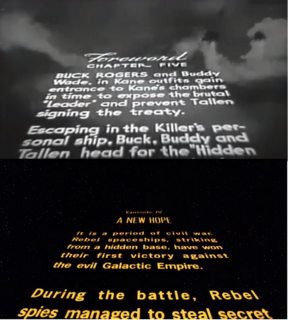
Look familiar?
It is also a pretty well known fact that the Galactic Empire and Rebels, along with the battle scenes within the movies, also take heavy inspiration from WWII. Stormtroopers are German Gestapo, the X-Wings and TIE Fighters are inspired by WWII aerial combat: https://youtu.be/msb8OdvBBjU
There is a clear right and wrong that is written into the Star Wars universe, and that most assuredly comes from the material and real world events that George Lucas was inspired by; serial comics and shows of the 30s, 40s, and 50s, leaned heavily into black and white morality. This is why superheroes from that era like Superman or Batman were originally written as static characters. "Superman is invincible, that's not as interesting as the X-Men struggling with their place in society!" Well, yeah, that's because Superman was meant to be nothing more than a comic book character that allows children to act out their power fantasy- "you can't make me go to bed, mom! Superman doesn't go to bed!" etc. etc.
But Star Wars has inspiration that goes back even further than the 1930s. It goes back to ancient Mesopotamia.
The Epic of Gilgamesh is the world's oldest and most notable form of literature that we know of. It is an epic that describes the heroic journey of one Gilgamesh, told in five parts. This is the earliest known example of what is known as "The Hero's Journey" in literature.
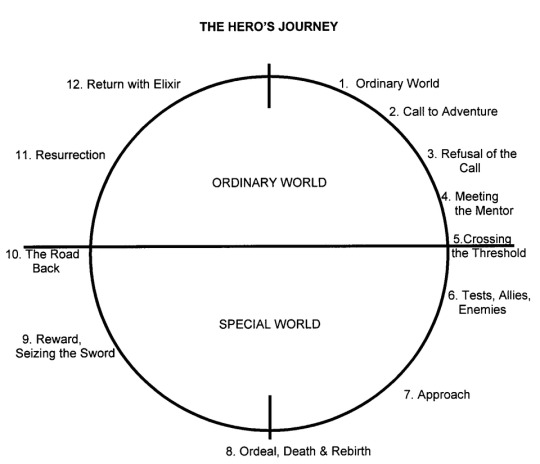
If you have any knowledge of the first movie of Star Wars, you're well aware of the story beats that you can read out in this diagram, as well be able to distinguish the similarities it has with The Epic of Gilgamesh.
Does this mean that Star Wars ripped off The Epic of Gilgamesh?
No. It doesn't. Because even though the story shares similar story beats, and features a black-and-white morality, a sci-fi space opera is a far cry from ancient Mesopotamian gods battling with each other. George Lucas didn't read the epic in school and decide "ah ha! I know how I'm going to make money!"
He was inspired, and he took that inspiration and created a multi-billion dollar franchise that millions love across the globe. He wrote that story and directed that movie, he put in the blood, sweat (lots of sweat- they filmed in Tunisia) and tears to make something WHOLLY NEW, and yet in some ways...similar.
Humans are very complex creatures, and our brain loves nothing more than finding patterns in things. Why is there such a thing as the Rule of Three in literature, a rule that dictates the satisfaction the reader gets when a story has a plot that occurs in three parts? Why is there traditionally only three acts? It is, simply put, satisfying. This traditional three-part structure often times creates stories that may look or feel similar simply because of how it is structured. This is not copying. This is a literature technique that humans have been using since the beginning of language itself.
And this is why I have such a problem with the people suggesting that authors are "copying" popular works- no one solely invented story beats, no one invented the supernatural fiction, no one, singular person, solely created the concepts that we are using today. No one. Not a single thing written is wholly original.
Originality is overrated. We are products of our environment, our culture, our media we consume- if an IF writer has a story with vampires and other supernatural creatures, and the MC is a detective attempting to solve crimes, was that invented by the very popular Wayhaven Chronicles by Mishka Jenkins? No. Vampires in media are nothing new, detectives in media are nothing new, and if they so happen to exist in other stories, what of it? Did Mishka invent vampires? No. They're a cultural phenomenon that has existed in multiple civilizations at once. Did she invent detectives? Obviously not.
Mishka was inspired and so were countless of other IF writers to write a story that involved the supernatural. These IF writers may have similar story beats, they may have similar themes, but that does not make it copying.
You know what makes Star Wars or The Wayhaven Chronicles or any other form of entertaining media great? Innovation.
It is how the authors tell the story, and why it is being written that creates such vast differences in genres. Star Wars isn't The Epic of Gilgamesh because its just "in space", it is the magnificent, innovative storytelling behind Star Wars that makes it so unique in our minds. The cinematography, the storytelling, the dialogue, the acting- all of that hard work into making something worthwhile and good is what makes it so unique when comparing it to other media that feature the literary use of "The Hero's Journey".
We all have something to bring to the table, to tell our stories that have a piece of us inside them. They are influenced by our laughter, our tears, our horror, our love, our rage or terrible indifference. They are influenced by our passions, our delusions, and they are written because we wish it to be so.
Are all impressionists copying Monet because he popularized impressionism? Are all artists who paint in similar styles copying off of the one who created the style in the first place? No. They're not.
To accuse IF authors, particularly the INNOCENT ones of copying others is an unbelievably insulting and ignorant statement that disregards the author's creativity and free will to write whatever the hell they want. If all you have to see out of a story is the basic, bare bones elements to it, then allow me to speak for all IF authors out there and say:
You're missing the fucking point!
We've all put our hard work into not only LEARNING a coding language (which, surprise, not ALL of us know and have to spend HOURS figuring out) but we've learned a coding language to create a game for other people to enjoy, and we'll be damn fucking lucky if we're able to get any money off of our work that we have put in it.
This criticism becomes a form of entitlement real fast, as if a reader has any say as to the pace or way an IF story (or any art for that matter) is written.
Most of us are doing this because we love the idea of putting our work out there as an IF fiction for fun. Some of us have to work jobs, some of us have complicated lives that demand constant attention, some of us wish to do this as a living, but all of us?
All of us deserve the courtesy of being a creator that is sharing their work with the world.
The next time you decide to accuse an IF writer of copying another person, ask yourself if it's legitimate plagiarism or you're just someone who doesn't have the capacity to consider that literary themes, tropes, cliches, and genres, are not the same thing as "copying".
268 notes
·
View notes
Text
Reading Tips from your Hyper Librarian
"So many books, so little time", right? If anyone understands this, it's us bibliophiles and librarians (and publishers) -especially someone like me! My interests are super varied and many times, I'll start reading a few chapters in a book that REALLY REALLY interests me...but then, I have that ADHD SHINY moment and the poor thing is forgotten. Seriously, this is a constant struggle. Being a librarian makes this even more important that I know what I'm recommending. And I do! I just can't get the focus to actually read them>< I'm part of a committee that is assigned reading every year for 3 months (give or take) and -you guessed it- I get that done. Why? It's got a deadline and I churn through them like nobody's business. It also helps that I didn't choose them and they aren't always what I normally like to read. It gives me an edge when helping certain patrons look for something I normally don't read. Not that I don't have an idea already -it's just more cemented than usual since I actually read that particular book. Though I kinda gave you one of my tips in this blurb, I'll rehash later!
A little more on my SHINY moments and then we'll get to my tips! Like I said before, SHINY really takes a toll sometimes on my goals, but it also helps. How? Situation: I hear all this buzz about this upcoming book (debut author/fresh voice/intriguing plotline/etc.). I either miraculously get an ARC or I'm waiting with bated breath, for the dang thing to get shipped to my library so that I can "steal" it for the weekend before it gets catalogued (I tell everyone I'm borrowing it, so don't judge me!). If all goes according to plan, I DEVOUR it within a day and come back exclaiming all the virtues of reading said book. I might even write a glowing review (if I had the capacity at the time). This has happened with a few books in the past years: Stay Gold, Wicked Fox & Vicious Spirits, Ember in the Ashes, Invisible Differences, and a few others, but I can't remember right now. Point: it's super hard for me to get the reading I want done, actually done.
AND NOW, for the star of our show: The Hyper Librarian's Reading Tips!
Please remember, these are things I remind myself of when I'm having a hard time getting through my TBR (the library-books-out-that-are-due TBR). Some lead into or are extensions of others, but being specific is necessary for me. You can adapt them to your needs or or just copy/paste them into your life :)
1) It's ok to DNF. So you gave this book the 'old college try' and just can't do it -it's becoming torturous and you're at risk of going into the dreaded slump... Just stop already and save yourself more grief. Another reason is that you're just not in the mood to finish, so don't. Why torture yourself (again -I seem to like using this word, but it's so accurate at times!) by seeing a book lying close by that you wish was anywhere but? Some of us (incl. moi) have a shelf on Goodreads just for those pesky things. Let's cut the drama and move on! I find it therapeutic as well as final.
2) You are your own censorship committee. We all have that verbal content line where ~once toed/crossed~ our tolerance, belief, comfort level, etc., is compromised to the point where there's no enjoyment because of that one or more 'tidbits' giving you grief. Sometimes, I'll scan several reviews before starting because I want to make sure I don't get any 'surprises'. Most times, I get to that proverbial part that has me slamming the book closed, never to be opened again (dramatic, yes, but sometimes very true!). {{Point}}: you are the only person keeping you from reading something you don't like!
3) Be picky! You are as unique as your fingerprint. Why wouldn't your reading habits follow? If you get a rec that is absolutely not your thing, say no (thank you). It's not fair to you if you're just going to trudge through it anyway for the sake of being polite to friends/family/librarians/coworkers/etc (publishers, I'm sorry). If you like vampires, werewolves, and all things paranormal (like me) don't despair of the current books coming out -look back to the '90s and '00s! Reading is one of the most personal things we experience in our lives. {{Please, for the sake of your sanity}}: read reviews, look for trigger warnings (if that applies to you), verify that historically under-represented voices are portrayed correctly (misinformation is our greatest threat). For example: I won't buy a book about LGBT+ characters without verifying the plot as authentic (i.e. all fluff and no real problems vs real problems with a happy ending). I need to know that the book about that Transgender girl is written by someone who is either also Transgender or very well-informed.
4) Own your reading preferences. Just own it. I read somewhere in a journal interview that the concept of "guilty pleasure" shouldn't exist. So you like SJM's ACOTAR and are all about that fan community life, but are afraid to talk about it even though it's basically a mainstream subculture now? {{Point}}: Stop feeling guilty for what makes you happy! If people judge, that's their problem. I read romance for stress relief and because I just happen to like happy endings. Seriously, people need to stop shaming romance readers and self-shame is a huge part! Don't shame yourself, "SHUN THE NON-BELIEVERS"! (Charlie the Unicorn, RIP in Youtube history)
5) It's ok to read more than one book at a time. If you're anything like me (the Attention Deficit part), you probably have up to 5 books going at the same time: that paperback at home, the ebook on your phone, audiobook in the car, hardcover in your office, etc. (I know that's not 5 -I ran out of ideas!). Point: it's only natural you're in the mood for something different at certain periods of the day, week, or whatever. They'll get finished eventually. Just spare a thought for the 1 or 2 that are a little extra "dusty" cuz that might mean you need to DNF...just a thought.
6) Book clubs are your friend! They can be your enemy, too; but here's what you do: choose one that reads almost everything you want to in a specific genre. I'm not talking the next bestseller (unless that's you). I'm talking genre-specific and something you researched before joining. Online or in-person, this is has the potential for changing your reading habits for the better because you'll actually want to interact and read the books! I decided to join a book club so I could finally talk about a niche genre that is one of my favorites: Christian fiction. No one around me reads this (anymore) and I have no one to talk to (regularly) and trade recs with, so I joined a Facebook group and it's really nice to chat about all these great books and authors I've recently read with others who do the same:)
7) Book journaling. Yes, you may have heard of these things. There are so many ways to journal about your reading: bullet journals, the blank ones where you can let loose your creativity, the ones like from Moleskin where you just fill in the pre-determined spaces (aka: reading log), lined journals for writing your heart out, themed reading planners and TBR journals... Just look it up, the interwebs has you covered. The key is to use them as a tool for expanding and enriching your enjoyment or education (nonfic). I don't journal for everything, but I do like to do it for the ones I know I'm going to review later or for general reflections as I read. I started doing it by chapters, but that doesn't cut it when something jumps out at me from a random page and I NEED to write about it immediately. So, I make note of the page # and we good! I'm very personal in my writing (if you can't tell) and it can turn into tangents, but that's how I roll. I don't do that artsy stuff because that takes away from the reason I'm doing this in the first place. I write about anything regarding my reading -incl my reading slumps. I love it.
Wishing you Happy Reading! Thank you for reading:)
#reading#reading tips#books#reading is life#booksarelife#happy reading#reading problems#reading slump#book journal#booklr#reading blog#book blog#book club#reading advice#bookblr#adhd
43 notes
·
View notes
Photo
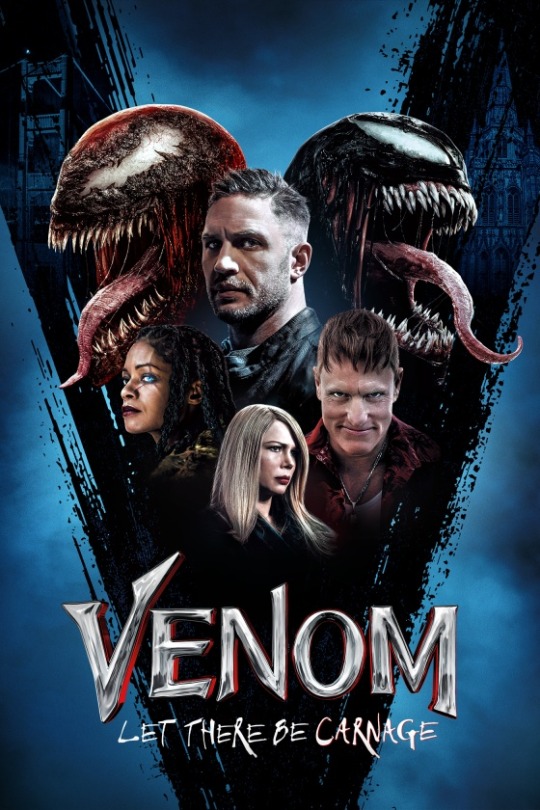
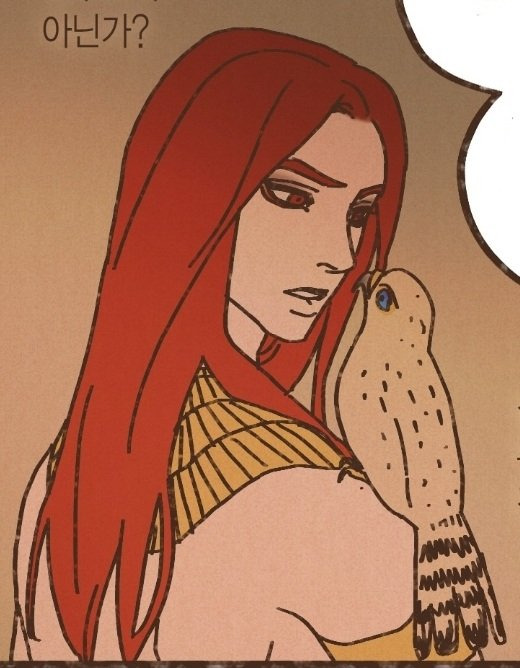

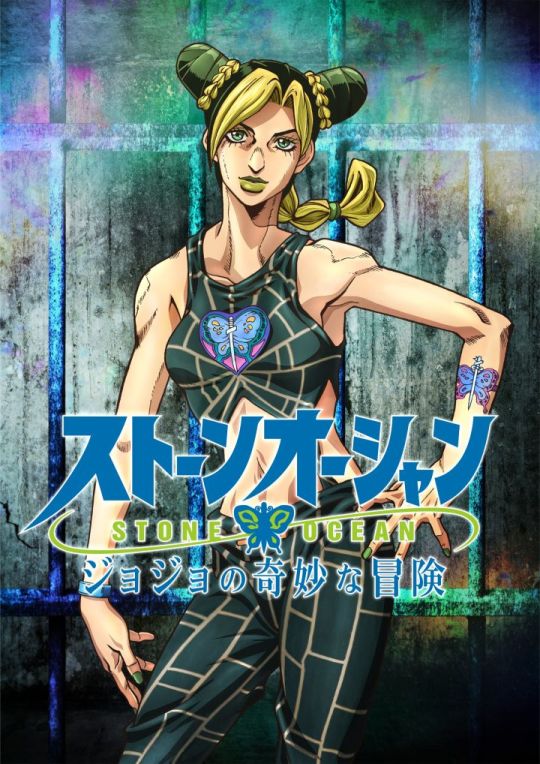

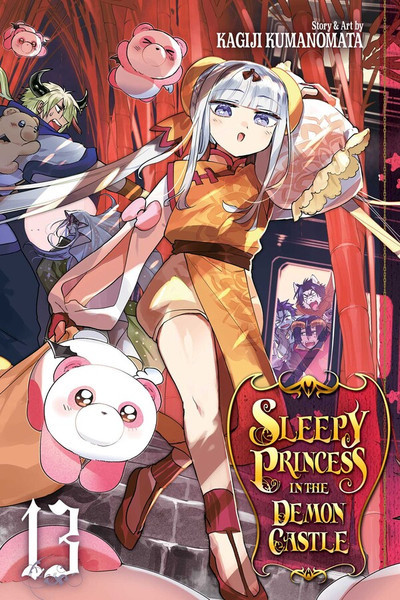
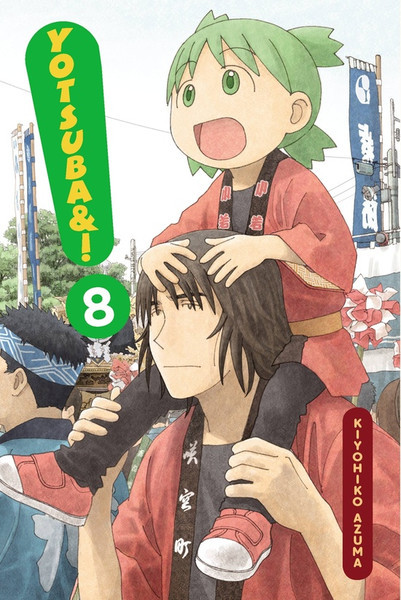
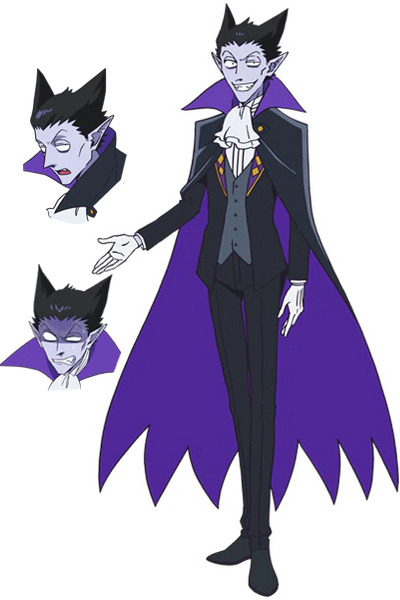
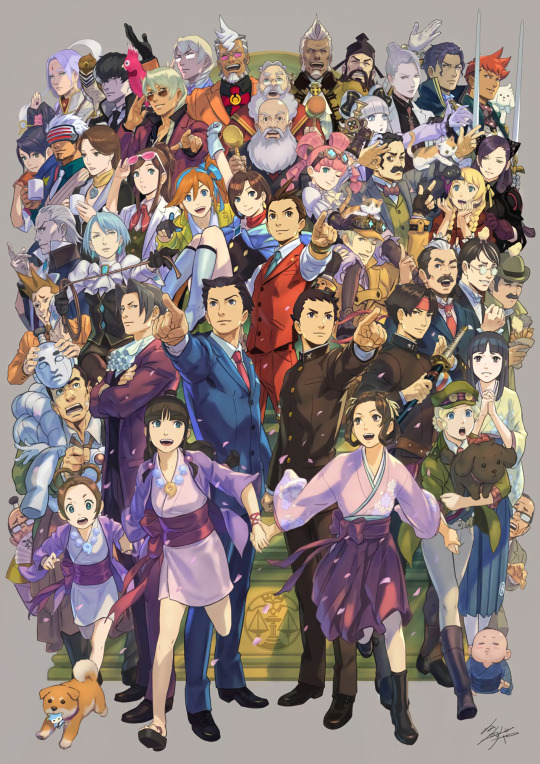
Weekly Media Roundup
-Venom: Let There Be Carnage (Movie) - Much like the first one I would love to break this movie apart and reconstruct the individual elements to create the ultimate ideal Monster-lover movie, but as it is it was still pretty fun. They fixed a lot of complaints I had about the first one (cut out unnecessary backstory, made the villains more interesting, made the Venom/Eddie relationship the focus, stopped trying to force Anne as the love interest and just let her be happy with Dan), though I still felt like we needed some more positive interactions between Eddie and Venom to make the whole “We’re a team and the villains aren't” thing work for me. Still the fact that this movie exists is hilarious and fantastic, really hope Marvel doesn’t fuck up my boys by making them villains.
-Ennead (Webcomic) - I don’t usually have guilty pleasures as I’m pretty unapologetic about the things I enjoy but in this rare case, yeah I’m kinda guilty about this one. I stand by the it has a lot of good elements (breathtaking art and character designs, a unique setting in Ancient Egypt, complicated characters with interesting motivations, ect), I really would not recommend most people check it out, and if you do definitely read the trigger warnings before hand. I would be lying if I didn’t say it occupied a lot of my brain space this week though so here it is.
-Link Click (Anime) - This has been hyped up as one of the Anime of the Year contenders, so I wanted to try it it before making my personal final judgement. I really like the art direction so far, and time travel stories definitely have the potential to be pretty dope, so wile my first impression is “pretty good”, I have expectations for it to impress me further. Also I realize that this is partially because I’m attracted to this genre anyway but with this, the MXTX works, 19 days, and Their Story, most of what I’ve read from China seems to fall into the “unusually long gays” category.
-JJBA: Stone Ocean (Anime) - Anime night continues with the newest Jojo, we’ve just been introduced to a sentient collective of plankton inhabiting the body of a dead girl and I think she’ll be my favorite .I’ve been impressed by some of the creative way’s they are able to use Jolyne’s Stand, and am looking forward to seeing whatever weirdass shit Araki has in store for us.
-Blue Period (Anime) - Still very good, will probably have more to say when it concludes in a couple weeks.
-Sleepy Princess in The Demon Castle (Anime)- Finished! Up in the air about whether I’ll read the manga-I did really enjoy the wholesome demon castle setting and the cute, lovable character dynamics, but I’m not sure how many more stories they’ll be able to tell with the same “hostage princess looking for ways to sleep” gimmick. That being said, really love how all the castle residents are these skeletor minion looking demons but have a very chill coworker dynamic, exactly my taste.
-Yotsuba&! (Manga) - A new book finally came out so in celebration I’m going to be rereading the series. I’ll have more to say next time.
-The Vampire Dies In No Time (Anime) - Finished! My interest in the series waned a bit near the end as they started to get less creative with the jokes and enemy vampires, but overall I really enjoyed this, especially John-who is unbelievably cute and precious-and Draluc, who I liked a lot more than I thought I would thanks to his genuine excitement at everything and his malewife energy. Would recommend if your a fan of friendly monsters and stupid humor.
-The Great Ace Attorney Chronicles (Video Game) - As you do with hyperfixations, I have found a good playthrough to watch and vicariously re live the entire story again. The playthrough I’m watching has all the people involved gushing over how charming all the characters are, and it’s nice to have my tastes validated haha.
Listening to: Bad Habits by Ed Sheeran, Dive Back In Time (Link Click OST), Glad You Came (D Sharp’s Violin Cover), Electric Feel by MGMT, Don’t Stop by Innerpartysystem, No Body No Crime and Willow by Taylor Swift, Majora’s Mask OST, Kill Everyone by Hollywood Undead, All Eyes on Me by Bo Burnham
2 notes
·
View notes
Text
Hemingway and Other Things You Shouldn't Talk About
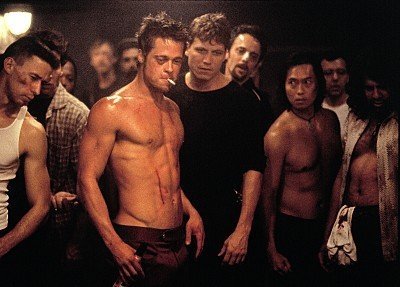
Hemingway Said, You Do Not Talk About Writing
Rule number one: You do not talk about writing. Rule number two: You do NOT talk about writing! I always picture Brad Pitt walking around telling a group of authors all the rules before a furious word slinging writers event, in some dark, seedy basement covered in sweat and coffee stains.

Hemingway and Fight Club have things in common, such as rules about not talking. Obviously this is not the case. However, as writers we have a series of unwritten laws that we tend to either abide or pretend to be oblivious too. I am Jack's complete lack of interest. Writers Have Heroes, Too As writers, we have authors as heroes just as those school kids look up to athletes. Stephen King, Ernest Hemingway, Henry Miller and Stu Stein, to name a few. These authors broke the first rule of Writing Club: they all have a publication called On Writing. "Throughout Ernest Hemingway's career as a writer," says Larry W. Phillips in his introduction to Ernest Hemingway on Writing, "he maintained that it was bad luck to talk about writing." So what else are we mortal writer's, superstitious or otherwise, not supposed to do or say? There is quite a list, actually. I am Jack's bleeding heart. Rule #1 As we have established, it is bad luck to talk about writing. Thanks, Ernest. Why, though? Basically, as Hemingway explains further, it is better to just write and not speak of it. In his method of removing all the bullshit and leaving behind only the greatness. I disagree with this almost completely. Almost. I feel that we are just glorified campfire story-tellers. It is our duty to tell stories. Written down for others to enjoy at their leisure, obviously, that's why we are "writers". At the core of it all, however, we tell stories. Talking about our stories is just in our nature. I am Jack's gaping mouth. I do agree with the concept that we shouldn't brag, and we also shouldn't try to school or teach every passer-by with our knowledge of the process. Just tell the story, mate. Rule #2 Another no-no myth is that we should write perfect. I am Jack's decaying ego. As the saying goes: practice makes perfect. I disagree. I used to tell my football teams that practice does NOT make perfect, only perfect practice makes perfect. They just looked at me and nodded "yes coach".
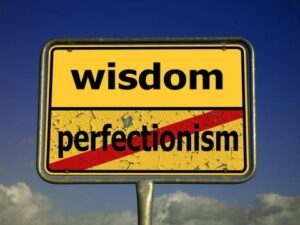
Don't practice writing, practice perfect writing. In writing, this same method applies to an extent. If you practice writing you will get better, but only so far as you write perfect. The problem is that no one just writes perfectly out of the box. If we did, there would be no need for drafts and we would just pump out perfect final drafts day in and day out. James Patterson was said to have written over a million words before he wrote his first novel. Writing makes you write better, but to write better you don't just write words, you write better words. The one issue I have with this is that trying to write every word perfectly distracts from the art. Instead, I suggest that you just write. Worry only about perfection while editing and focus on writing perfectly whilst writing the final draft. Otherwise, just write. Rule #3 Don't write like your idols. Sigh. I have heard this over and over and over and every time it upsets me to no end. Believe it or not, there is a finite number of writing genres. We are drawn towards certain ones and turned off by others. I, for example, love thriller and horror and dislike romance and most young adult. Having authors as idols is not a bad thing and if we aspire to be an author then who should we emulate? Our idols. Exactly. So why are we told not to? The reasons vary from one mouth to another, but the main theme seems to be that we should write our own style in our own voice. I tend to believe, though, that our own style and voice will come out, anyway. We should write like our idols. I don't write romance, and would never try to emulate Nicholas Sparks. However, writing horror I see nothing wrong trying to write in similar styles of King, Koontz or Barker. Will I ever write a book and have a publisher read it and say... "Hey! did Clive Barker write this?" No. That will never happen. However, if I am trying to sell a horror book and someone compares it to Clive Barker, then I should feel overwhelmingly excited about that. Writing like your idols is never a bad thing. Rule #4 You should never ask your mom for feedback. Again, heavy sigh. Friends and family are essential for writers' feedback, especially if you are just starting out. While it is true that mom and dad will have a harder time giving you negative feedback (generally) this is not a bad thing. As a writer, you will experience enough setbacks and hardships and negativity to last five lifetimes. Eventually it will harden you, make you better, make you more fierce. In the beginning though, it's detrimental to your writing career. If you start out with negative feedback, you will eventually believe it. Having mom coo and gush over your first few works will help boost your ego and keep you going. From there, you will begin perfect practice and have thousands more words under your belt. You must seek out your mom and close friends for feedback in the beginning (and again any time you need to return to your happy place of believing you can accomplish this task). It is essential, and helpful. I am Jack's boastful pride. Rule #5
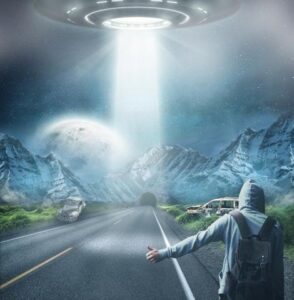
If you don't know, believe you know. Base it on natural physics or biology and readers will believe it as real, too. Write what you know. This is tricky and I agree with it to a very limited extent. Readers (and publishers alike) know when you are bullshitting them. If you are writing about car mechanics and you know nothing of repairing an engine, you will turn your readers off. Once you lose a reader because you don't know what you are talking about, they will never believe another word you write, if they even finish the book. However, just writing what you know will severely limit what you write about. And what about things that no one knows about? Aliens, vampires, deep space... if we only ever wrote what we knew, then books like Lewis' Narnia or Tolkien's ring quests and hobbits, would never exist. I take the phrase "write what you know" and change it slightly to "write what you believe." A simple change that allows the author to have a slight edge in the truthfulness in the story. I am Jack's cancer-ridden mind. We Don't Know Everything Certainly no one knows about hobbits, but Tolkien believed in them so much that what he said about them was a gospel of truth. No one doubts hobbits because Tolkien didn't doubt them. However, we can't always write absolute fantasy. So you should know your material. You need to know how wounds heal, how radios operate, or how television signals work. Otherwise, if you bull shit these small details, You won't have much success. Roald Dahl wouldn't have such success with Willy Wonka. Sure there is a great deal of fantasy in that chocolate factory, but imagine if Dahl had simply made up how television signals work? We would never believe that it was possible to travel through those television waves and might have put the book down. Believe what you write and learn what you do not know. Don't be afraid of research and get the small details right. Rule #6 Don't write cliche. The main problem I have with this "advice" is that we then have to define what is cliche. Then, further, if we don't write cliche, there wouldn't be cliche to write. The issue there is that cliche works. That is why it is cliche. Now you are asking yourself how many more times can I possibly say that word in one paragraph. The answer is 97. However, I will refrain. Yes, the works can be overworked or even trite. They are important. This is never more obvious than when you get ideas for stories. Just like Hollywood, the literary world goes around in a circle. For example, right now we have an influx of super hero movies that followed a slew of Romance and Romantic comedies. True, too, will be that the literary world will follow suit. Wizards and broom stick games followed by vampires and werewolves. It's all a Cycle Horror is popular when Young Adult is on the decline and Romance blooms when Fantasy fades. Just because you write cliche projects (96) don't worry about it. You may have to put it in a drawer and forget it for a few years, but soon and once again, the time will be right and people will be clamoring for that long-forgotten cliche (95) to be unleashed. Don't be afraid to complete a project, just because the market is currently flooded with a similar style of work doesn't mean it won't get noticed. "It's only after we've lost everything that we are free to do anything." Rule #7 You must find your unique voice. Umm. This is such a convoluted piece of advice. Yes, you do, but no, you do not. Confused? You should be. I spent too many wasted hours trying to follow this seemingly simple "fact". Hours I will never get back. Quickly (as I have other posts and pages about voice here that go into deeper detail), voice is not how you talk or the sounds that come from your characters mouths. Voice is, in essence, a style. The catch, however, is that your book's voice is unique to that book. Your voice will change from project to project. Do you need to find it? The real answer is that you will notice the voice emerging as you work. From draft to draft your project's voice will emerge and you can then focus more on it. For now, in the beginning, it isn't such a big worry. It will come and if it doesn't, then that is one tale-tell sign that perhaps that particular project isn't making the finish line. Rule #8 Finally, the old tale to ensure you write every single day. You must write X amount of words, or for X amount of hours every single day if you are going to be successful. There are so many "facts" to support this: King writes 2000 words every day and won't stop until he's done it. Or, Koontz ensures, he writes for a minimum of 2 hours each day. Yes, that method works for some, even a lot of, people. However, these famous authors are paid to write. Are you yet paid to write every day? I know that I am not. I have work, and children and family and friends and shopping to do and places to go. Let's be frank. You need to make the time to write. It does need to be a habit that you can do and get into. If it's ever a chore, then perhaps it isn't for you. It is nice to have goals. However, I will fight to the death against anyone that says I must write a certain amount or for a certain time every single day. We Have Lives I have a life. You do too. While you, like me, want to make a career from writing, you also have other obligations and other spontaneous things that appear that take our time, focus and attention away. Go with it. Get a break. Take a day or even two off. Go outside. Research. Read. Watch a movie. Get some sun on your skin. Go shopping. You do not have to write every single day. Just as long as you don't fall in the hole and make not-writing the habit. I am Jack's exhausted colon. Write. Write often. Get lost in it. Talk about it. Get positive feedback. Enjoy what you do and do it with a fervor and a vigor that rivals pure passion. Read the full article
5 notes
·
View notes
Text
“ she was destruction given form and purpose. hers was an elegant savagery ”
ODILIA REYNARD DE VRIES
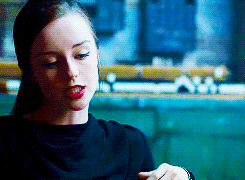
(ALSO KNOWN AS AVA VOSS)
age: appears 28, actually 939
pronouns: she/her
sexuality: bisexual
occupation: preschool teacher
species: trickster/vampire hybrid
faceclaim: kacey rohl
death tw, implied abuse tw, murder tw below the cut
Odilia de Vries’s mother was obsessed with youth. No other attributes mattered; beauty and vitality came above all else. As far back as she would remember, Odilia had watched her mother slather herself in creams and potions from the innocuous—spring water—to the verboten—virgin’s blood—all designed to stave off the passage of time and keep the interest of her wealthy father. An outwardly pious man, in reality he was anything but, scheming and stealing his way ahead. It didn’t matter the racket—overtaxing the peasants living on his land, skimming off the top of church tithes, even poisoning rivals who held more sway with the king—her father executed it ruthlessly and flawlessly. Beautiful and far too sharp for her own good, Odilia was the apple of her parents eyes, born and bred to continue each of their legacies with the kind of devotion most of her peers showed only to their god. Her unique skills, bending reality, wrapping it around her little finger and warping the world to be whatever she wanted were a divine reward for her parents’ hard work, and they made sure she knew it, bending her to their will the way she bent everyone else to hers.
After they died, things were easier in a way. There was no one else there to push her on and she was finally the master of her own destiny, but it wasn’t long before the guilt began to creep back in and she began to imagine them there with her, praising each scheme and each con and soothing the fears and the humanity that forced their way into her heart and seemed to cling there more and more with each day she spent alone, locked up in a castle with no one but the servants and occasional visiting dignitaries. She tried everything she could to push it back—religion, potions, witches, any book or scrap of information she could get her hands on—but none of it seemed to work. Ironically, it was the very same woods witch that had given her mother the potions that had done nothing that gave Odilia the answers she was looking for, both about her abilities and her ageless face, and about how to banish any fragments of fear and doubt she still carried. Odilia needed a vampire.
Cain Abbott all but fell into her lap. He had been so easy to manipulate; all the boy had been looking for was acceptance and it had been too simple to give it to him. He wasn’t a monster, no more than she was a scared, mortal girl afraid to die alone, and Odilia didn’t even have to lie to convince him of that. He fell in love with her for her words alone, no need for tricks or bending reality, and she had loved him in return. The thought of staying with him forever had been tempting, but she had been alone with her own thoughts for so long that the temptation to be free of the feelings that had haunted her for hundreds of year was so much stronger. She turned off her humanity and left him, but found that he was never far from her thoughts. Every village she massacred, she signed his name, messages across space and time, knowing that one day, he’d come and find her. Convincing Cain that she was dead was the first time she’d ever used her trickster powers on him, and she disappeared into another face, another name, determined to lie low and forget Cain Abbott had ever existed.
Life after death was consistent, stable, and—no matter how many ruses she managed to pull on unsuspecting neigbours or how much the world changed, grew, and advanced—truly and deeply boring. She took up hobby after hobby, started painting, writing, baking, and even tried dragging new people into her game of cat and mouse, but nothing and no one could fill the hole left behind by the thrill of the chase. So, she formed a new plan. She’d been meticulous about hiding herself for so many years; getting sloppy could be fun, a one player game of hide and seek with a seeker who didn’t even know he was looking. She buried clues as often as she could, a self-portrait in a museum, a dedication in a book, even crossing paths with his siblings. Only once did she go near Cain himself, watching from afar. None of her victims were half as interesting as the Abbotts, and in time, Odilia found herself getting bolder. She hadn’t set out to move to the same town as the Abbott siblings. Tiny towns were far easier to run scams from—the townspeople would think they knew Ava Voss, wouldn’t suspect that a meek little church mouse was defrauding them left and right—and Bellport had been on her radar for quite a while. Any other time, the sight of an Abbott would have been enough to make her pack up and leave, but this time, Odilia felt like tempting fate. For once, the future was open and unpredictable, and Odilia was ready for anything.
1 note
·
View note
Text
1. Do you ever doubt the existence of others than you?
All the time. I wouldn’t be shocked if I woke up one day still as a little kid and all this was some weird fever dream.
2. On a scale of 1-5, how afraid of the dark are you?
Is 0 an option? If not then 1.
3. The person you would never want to meet?
Jared Leto. I have zero interest being sexually harassed or any of the other shit he thinks is ok. My other answer would’ve been Harvey Weinstein but I’ve regrettably already met him at a party when I was 13 and promptly threw up in a trash can because the vibes I got off him were so negative they made me physically ill.
4. What is your favorite word?
Fuck. It’s so versatile.
5. If you were a type of tree, what would you be?
Palm tree.
6. When you looked in the mirror this morning what was the first thing you thought?
“Holy shit! My hair’s still curly! I thought that bun fucked it up!”
7. What shirt are you wearing?
A super old black tank top with a faded Union Jack on it that’s covered in holes but is super comfy so I wear it to bed.
8. What do you label yourself as?
Demi-pansexual goth-y punk rocker chick with emotional intimacy issues, a biting wit, and a flair for the dramatic
9. Bright room or dark room?
Dark. I’m like a vampire. I hate the light. It gives me headaches.
10. What were you doing at midnight last night?
Watching TV.
11. Favorite age you’ve been so far?
So far 25 has been pretty good.
12. Who told you they loved you last?
My partner.
13. Your worst enemy?
Red meat. Makes me crazy sick.
14. What is your current desktop picture?
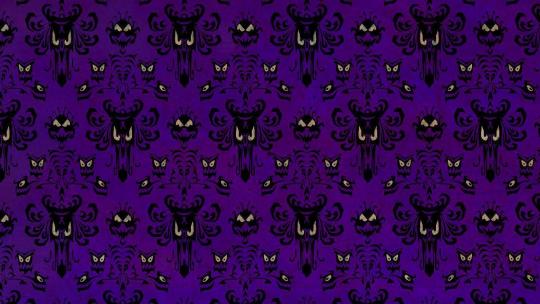
15. Do you like someone?
It’d be awkward if I didn’t considering I’m in a committed relationship.
16. The last song you listened to?
Basket Case by Green Day.
17. You can press a button that will make any one person explode. Who would you blow up?
Trump. It’d solve so many problems.
18. Who would you really like to just punch in the face?
Trump. Any question like this has the exact same answer.
19. If anyone could be your slave for a day, who would it be and what would they have to do?
I’d make Trump be my slave while I donate both of our time helping the homeless and the “illegal” immigrants in Downtown LA. That way I can punish him while also doing some good.
20. What is your best physical attribute? (showing said attribute is optional)
My hair. When I let it air dry it has the best curls I’ve ever seen!
21. If you were the opposite sex for one day, what would you look like and what would you do?
I’d probably look the same but without tits and I’d probably jerk off a lot.
22. Do you have a secret talent? If yes, what is it?
I can always predict when my brother’s going to be home to within a 10 minute window.
23. What is one unique thing you’re afraid of?
Dying at Disneyland.
24. You can only have one kind of sandwich. Every sandwich ingredient known to humankind is at your disposal.
Caprese sandwich. It’s just as good fresh as it is as a grilled cheese.
25. You just found $100! How are you going to spend it?
Probably on either makeup or skincare because I need to replace a few things that I’m running low on.
26. You just got a free plane ticket to anywhere in the world, but you have to leave immediately. Where are you going to go?
Tokyo Disney Resort.
27. An angel appears out of Heaven and offers you a lifetime supply of the alcoholic beverage of your choice. “Be brand-specific” it says. Man! What are you gonna say about that? Even if you don’t drink booze there’s something you can figure out… so what’s it gonna be?
Captain Morgan Watermelon Smash. I love watermelon and I love rum and that’s the best mix of the two.
28. You discover a beautiful island upon which you may build your own society. You make the rules. What is the first rule you put into place?
Every single person is equal. Full stop. Anyone who says otherwise is banished back to the mainland.
29. What is your favorite expletive?
Fuck.
30. Your house is on fire, holy shit! You have just enough time to run in there and grab ONE inanimate object. Don’t worry, your loved ones and pets have already made it out safely. So what’s the one thing you’re going to save from that blazing inferno?
My dance bag. It has a lot of good memories attached to it and has my first pair of pointe shoes in it which I can’t replace.
31. You can erase any horrible experience from your past. What will it be?
Watching the plane hit the 2nd tower live on TV on 9/11 when I was only 7. It fucked me up so badly I’m still in therapy for it.
32. You got kicked out of the country for being a time-traveling heathen who sleeps with celebrities and has super-powers. But check out this cool shit… you can move to anywhere else in the world!
I’d probably wanna move to either Paris or Tokyo.
33. The Celestial Gates Of Beyond have opened, much to your surprise because you didn’t think such a thing existed. Death appears. As it turns out, Death is actually a pretty cool entity, and happens to be in a fantastic mood. Death offers to return the friend/family-member/person/etc. of your choice to the living world. Who will you bring back?
Carrie Fisher. The world needs our crazy space mom to shock it back into the good timeline.
34. What was your last dream about?
It was super mundane. I was painting my nails. They were gorgeous.
35. Are you a good….[insert anything you’d like here]?
I’m good at a lot of things.
36. Have you ever been admitted to the hospital?
No. And I hope I never am until I’m in a body bag on my way to the morgue.
37. Have you ever built a snowman?
I’m from Southern California. We don’t get snow.
38. What is the color of your socks?
One is aqua with flamingos and pineapples and the other is grey with rainbows and clouds. They are also currently inside out.
39. What type of music do you like?
I mostly listen to punk, grunge, classing rock, show tunes, stuff like that. I’m pretty open to everything except religious, children's, and rap. And free-form jazz. I hate that shit.
40. Do you prefer sunrises or sunsets?
Sunsets.
41. What is your favorite milkshake flavor?
It depends on where I’m getting it but anything super sugary.
42. What football team do you support? (I will answer in terms of American football as well as soccer)
I hate football. The only sport I even sorta watch is baseball.
43. Do you have any scars?
A few. None of them are very noticeable, though, and they’re all in hidden places.
44. What do you want to be when you graduate?
I wanted to do something in the entertainment industry. So I studied costume design. Instead I just fucked up my mental and physical heath almost to the point of no return.
45. If you could change one thing about yourself, what would it be?
Nothing. I love myself exactly as I am.
46. Are you reliable?
Shockingly, yes. I seem super flaky but if you need someone to get something done or remember some random shit I’m your girl.
47. If you could ask your future self one question, what would it be?
Depends on how far in the future. But I think it would be who wins the presidential election this year. Because if we have to deal with 4 more years of Trump I’m going to kill myself.
48. Do you hold grudges?
Like you wouldn’t believe.
49. If you could breed two animals together to defy the laws of nature, what new animal would you create?
CatDog. And not just because of the cartoon from when I was a kid.
50. What is the most unusual conversation you’ve ever had?
Me and my therapist were talking about how Columbus is the reason humans have chlamydia.
51. Are you a good liar?
Extremely.
52. How long could you go without talking?
However long I need to. I spend a lot of time alone so talking isn’t really a big deal for me.
53. What has been you worst haircut/style?
I once had a bob when I was a kid. It wasn’t a good look. I don’t have the bone structure.
54. Have you ever baked your own cake?
I love baking and cakes are super fun to make!
55. Can you do any accents other than your own?
Many! I used to do theatre and the more accents you could do the more roles you could get.
56. What do you like on your toast?
Butter. Melted. I’m a simple girl.
57. What is the last thing you drew a picture of?
I was watching Next In Fashion and got pissed that they didn’t have a single plaid fabric in the studio so I drew this red carpet look using almost entirely plaids.
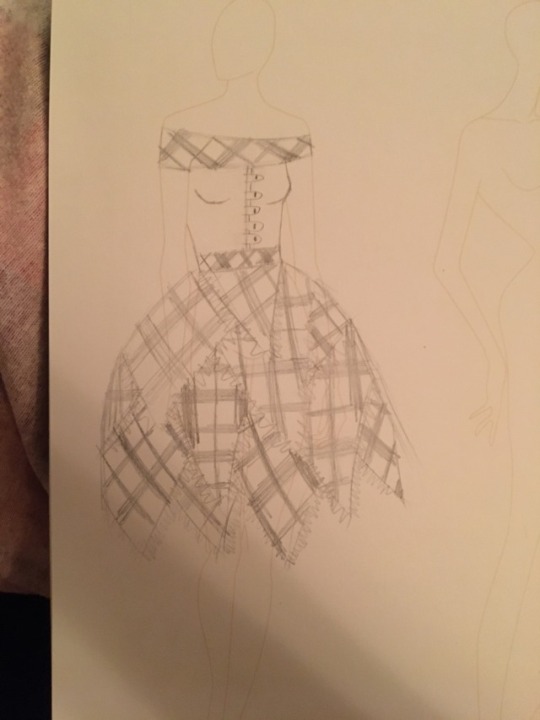
58. What would be you dream car?
A motorcycle.
59. Do you sing in the shower? Or do anything unusual in the shower? Explain.
I love to sing in the bath. I even have a special playlist that’s just songs I sing in the bath.
60. Do you believe in aliens?
I’d be stupid not to.
61. Do you often read your horoscope?
I used to. Not so much anymore.
62. What is your favorite letter of the alphabet?
This is a stupid question.
63. Which is cooler: dinosaurs or dragons?
Dragons. Hands down.
64. What do you think about babies?
Cool in theory, horrible in practice. I will never be a mom.
65. Freebie! Ask anything interesting you can think of.
I’ll use the same question I asked @anangelamuse-castiel-spnfam which was “If your universe suddenly stopped existing and you had to pick another one to live in, which would you pick?” and my answer would be probably the one that I keep seeing in my head that I’m writing a book about because I know shit isn’t going to hit the fan and the world is actually on the mend. But only if I can swap places with the main character of the book because she’s awesome and I love the way her story ends.
2 notes
·
View notes
Text
A Unique Spin on the Fantasy Genre
from the blog It Came From the 20th Century, filmmaker Jonathan R. Skocik:
Okay, strictly speaking, this falls outside the parameters of this blog, since it is not from the 20th century. However, I’m making an exception in this case because I want to help promote an excellent book that deserves to be read.
Elves, castles, magic, kings and queens, swordplay, imaginary languages – yes, we’ve seen all this before, and Alyssa Marie Bethancourt’s debut novel, Mornnovin has them in droves. That is not to say these elements are automatically tired in any way. There’s a reason we keep revisiting them. But in the wrong hands, they can admittedly feel stale or even silly. Fortunately, Ms. Bethancourt knows her genre, and navigates the material with ease. The best fantasy will make you forget that it’s fantasy, allowing you to completely buy in to what you’re reading. Mornnovin is such a novel. Beyond this, however, and perhaps more importantly, it gives us a wholly fresh perspective in that the author is autistic, and her elven characters are also coded as such.
Bethancourt’s elves are emotional basket cases. Their feelings run the gamut, their internal lives raging storms of passion, guilt, and self-recrimination, yet they are expected to maintain a veneer of stoicism that would make Mr. Spock proud, even to the point of making elaborate hand gestures to indicate their feelings rather than allow a genuine emotion to reach their faces. These elves are no Vulcans, though, and their ability to maintain this cool facade is, shall we say, less well-perfected than their sci-fi counterparts. This is, in fact, an amazingly on-point depiction of the autistic experience. People on the spectrum spend most of their lives learning to hide what they’re really feeling, having been told over and over that their expressions of emotion are inappropriate. For this reason, autistics are often viewed as cold, rude, and distant. But this is largely learned behavior, the only reaction that makes any sense when it seems like everything you do is wrong.
That Bethancourt’s autism stand-ins are literally not human reflects the feeling many on the spectrum experience of not really being a part of humanity, of being aliens in their own world. This is further illustrated by the state of isolation in which the elves of Mornnovin have placed themselves. They live in Evlédíen, also called the Valley, hidden away from the rest of the world to protect themselves from the humans who once tried to exterminate them. The Purification, as the humans call it, could be viewed as a parallel for the erasure experienced by autistic people every day. Often, the lives and perspectives of the autistic community are ignored. The clueless and ignorant have even gone as far as to say that autistic people are not even really people, and that those on the spectrum actually have no inner life, no genuine feelings or sense of identity. What is this if not a low-key extermination, if not in fact, at least in spirit?
Onto this stage emerges our heroine, Loralianasa Raia, nicknamed Lorien. Though she’s over a hundred years old, she’s only just on the cusp of adulthood in elf terms. As the crown princess whose parents have long-since been murdered, she now faces the unwelcome responsibility of ruling her people. To make matters worse, this coincides with a global war among the humans as well as a sinister plot that soon drags the elves back onto the world stage. Lorien now faces the almost unthinkable decision to expose the existence of her people to the rest of the world in an effort to save the very people who once brought them to the brink of extinction. This funhouse lens coming-of-age story perfectly illustrates the exaggerated gravity that an autistic person faces upon joining the adult world. In much the same way that Joss Whedon’s Buffy the Vampire Slayer used monsters as a metaphor for growing up and learning adult responsibility, so does Bethancourt use her fantasy landscape of imagined cultures in a global war engineered by a vengeful sorcerer.
Of course, no coming-of-age story would be complete without a romance, and Bethancourt does not fail to deliver the goods. The concept of lovers bound by a telepathic link has perhaps been done to death in numerous online fanfics, but this manages to feel fresh, perhaps because of the earnestness with which it is written. It might also have to do with how truly endearing the love interest is. Naoise (pronounced Nee-shuh) Raynesley is the prince of Grenlec, a kingdom at war with their longtime rival, Telrisht. We meet him in the first chapter and there’s instant sparkage with Lorien. He’s bright, kind, open-minded, thoughtful, and witty. Indeed, he borders on being a Mary Sue, though thankfully never quite crosses the line. By the end of their first encounter, Naoise and Lorien are mystically joined, and though separated afterward for a large chunk of the story, their love grows stronger and stronger through the psychic bond they don’t even know they share. Visiting each other in dreams, they become each other’s only solace from the hellscape their world has become – though Naoise arguably has it worse, being that he’s stuck on the front lines of a battle that seems frustratingly unwinnable for reasons that will eventually become ominously clear.
As the story unfolds, we’re introduced to a colorful cast of supporting characters as intriguing and memorable as anything offered up by J.K. Rowling, Marvel, or even Tolkien himself. There’s Lorien’s sister Lyn, who having been raised away from her people has never learned their stoicism and therefore expresses herself with some delightfully creative profanity. We’ve also got Naoise’s womanizing brother, who manages to be charming despite being a total heel; a mercenary named Cole who struggles to outlive his shady past; the brusque elf warrior Sovoqatsu questing to fulfill a sense of purpose; and Sefaro, a good-natured ambassador from a distant country who serves as the moral compass of the group. Aside from the main party, there’s Lorien’s taskmaster guardian, Tomanasil; Naoise’s overbearing father, King Lorn; and a mysterious fairy named Sun.
But the greatest gem, for me at least, is the villain, Kataki Kurome, a sorcerer grieving over the murder of his wife at the hands of the humans. He engineers the war between Grenlec and Telrisht as a way to thin the herd and lessen the task he’s set for himself of annihilating humanity. He easily could have been a thinly-written mustache twirler, but Bethancourt gives him depth, pain, and a cold civility that at once makes him relatable and utterly terrifying. His cold determination, detached sense of purpose, devious craftiness, and sheer power make him seem utterly unbeatable. This, coupled with his age and inflexibility make him the perfect foil for the young and idealistic Lorien, who was already overwhelmed by the adult world even before the shit hit the fan.
No character is ignored, and Bethancourt not only gives depth and individuality to all of her primary characters, but breathes life and personality into even the most minor characters. Such a task naturally requires a lot of breathing room, and Mornnovin is not a short book. But it never overstays its welcome, and indeed the epic scope of the proceedings demands the necessary space to unfold. Beyond that, the pace never wavers, and the novel’s bulk is never daunting. Quite the contrary. This is the kind of expertly-woven story that draws you right in and keeps you anticipating each new development. Mornnovin isn’t just one of the best fantasy stories I’ve ever read. It’s easily one of the best novels I’ve read in recent memory, and I eagerly await the next installment in the series, due out next year.
Mornnovin is printed by Dogwood House press and is available from all major online booksellers.
Full disclosure: I am married to the author. However, this is my honest assessment of the piece.
-- Jonathan R. Skocik
2 notes
·
View notes
Link
by PAM GROSSMAN May 30, 2019
Pam Grossman is the author of Waking the Witch: Reflections on Women, Magic, and Power.
Witches have always walked among us, populating societies and storyscapes across the globe for thousands of years. From Circe to Hermione, from Morgan le Fay to Marie Laveau, the witch has long existed in the tales we tell about ladies with strange powers that can harm or heal. And although people of all genders have been considered witches, it is a word that is now usually associated with women.
Throughout most of history, she has been someone to fear, an uncanny Other who threatens our safety or manipulates reality for her own mercurial purposes. She’s a pariah, a persona non grata, a bogeywoman to defeat and discard. Though she has often been deemed a destructive entity, in actuality a witchy woman has historically been far more susceptible to attack than an inflictor of violence herself. As with other “terrifying” outsiders, she occupies a paradoxical role in cultural consciousness as both vicious aggressor and vulnerable prey.
Over the past 150 years or so, however, the witch has done another magic trick, by turning from a fright into a figure of inspiration. She is now as likely to be the heroine of your favorite TV show as she is its villain. She might show up in the form of your Wiccan coworker, or the beloved musician who gives off a sorceress vibe in videos or onstage.
There is also a chance that she is you, and that “witch” is an identity you have taken upon yourself for any number of reasons — heartfelt or flippant, public or private.
Today, more women than ever are choosing the way of the witch, whether literally or symbolically. They’re floating down catwalks and sidewalks in gauzy black clothing and adorning themselves with Pinterest-worthy pentagrams and crystals. They’re filling up movie theaters to watch witchy films, and gathering in back rooms and backyards to do rituals, consult tarot cards and set life-altering intentions. They’re marching in the streets with HEX THE PATRIARCHY placards and casting spells each month to try to constrain the commander-in-chief. Year after year, articles keep proclaiming, “It’s the Season of the Witch!” as journalists try to wrap their heads around the mushrooming witch “trend.”
And all of this begs the question: Why?
Why do witches matter? Why are they seemingly everywhere right now? What, exactly, are they? (And why the hell won’t they go away?)
I get asked such things over and over, and you would think that after a lifetime of studying and writing about witches, as well as hosting a witch-themed podcast and being a practitioner of witchcraft myself, my answers would be succinct.
In fact, I find that the more I work with the witch, the more complex she becomes. Hers is a slippery spirit: try to pin her down, and she’ll only recede further into the deep, dark wood.
I do know this for sure though: show me your witches, and I’ll show you your feelings about women. The fact that the resurgence of feminism and the popularity of the witch are ascending at the same time is no coincidence: the two are reflections of each other.
That said, this current Witch Wave is nothing new. I was a teen in the 1990s, the decade that brought us such pop-occulture as Buffy the Vampire Slayer, Charmed and The Craft, not to mention riot grrrls and third-wave feminists who taught me that female power could come in a variety of colors and sexualities. I learned that women could lead a revolution while wearing lipstick and combat boots — and sometimes even a cloak.
But my own witchly awakening came at an even earlier age.
Morganville, New Jersey, where I was raised, was a solidly suburban town, but it retained enough natural land features back then to still feel a little bit scruffy in spots. We had a small patch of woods in our backyard that abutted a horse farm, and the two were separated by a wisp of running water that we could cross via a plank of wood. In one corner of the yard, a giant puddle would form whenever it rained, surrounded by a border of ferns. My older sister, Emily, and I called this spot our Magical Place. That it would vanish and then reappear only added to its mystery. It was a portal to the unknown.
These woods are where I first remember doing magic — entering that state of deep play where imaginative action becomes reality. I would spend hours out there, creating rituals with rocks and sticks, drawing secret symbols in the dirt, losing all track of time. It was a space that felt holy and wild, yet still strangely safe.
As we age, we’re supposed to stop filling our heads with such “nonsense.” Unicorns are to be traded in for Barbie dolls (though both are mythical creatures, to be sure). We lose our tooth fairies, walk away from our wizards. Dragons get slain on the altar of youth.
Most kids grow out of their “magic phase.” I grew further into mine.
My grandma Trudy was a librarian at the West Long Branch Library, which meant I got to spend many an afternoon lurking between the 001.9 and 135 Dewey decimal–sections, reading about Bigfoot and dream interpretation and Nostradamus. I spent countless hours in my room, learning about witches and goddesses, and I loved anything by authors like George MacDonald, Roald Dahl, and Michael Ende — writers fluent in the language of enchantment. Books were my broomstick. They allowed me to fly to other realms where anything was possible.
Though fictional witches were my first guides, I soon discovered that magic was something real people could do. I started frequenting new age shops and experimenting with mass-market paperback spell books from the mall. I was raised Jewish but found myself attracted to belief systems that felt more individualized and mystical and that fully honored the feminine. Eventually I found my way to modern Paganism, a self-directed spiritual path that sustains me to this day. I’m not unique in this trajectory of pivoting away from organized religion and toward something more personal: as of September 2017, more than a quarter of U.S. adults — 27% — now say that they think of themselves as spiritual but not religious, according to Pew Research Center.
Now, I identify both as a witch and with the archetype of the witch overall, and I use the term fluidly. At any given time, I might use the word witch to signify my spiritual beliefs, my supernatural interests or my role as an unapologetically complex, dynamic female in a world that prefers its women to be smiling and still. I use it with equal parts sincerity and salt: with a bow to a rich and often painful history of worldwide witchcraft, and a wink to other members of our not-so-secret society of people who fight from the fringes for the liberty to be our weirdest and most wondrous selves. Magic is made in the margins.
To be clear: you don’t have to practice witchcraft or any other alternative form of spirituality to awaken your own inner witch. You may feel attracted to her symbolism, her style or her stories but are not about to rush out to buy a cauldron or go sing songs to the sky. Maybe you’re more of a nasty woman than a devotee of the Goddess. That’s perfectly fine: the witch belongs to you too.
I remain more convinced than ever that the concept of the witch endures because she transcends literalism and because she has so many dark and sparkling things to teach us. Many people get fixated on the “truth” of the witch, and numerous fine history books attempt to tackle the topic from the angle of so-called factuality. Did people actually believe in magic? They most certainly did and still do. Were the thousands of victims who were killed in the 16th- and 17th-century witch hunts actually witches themselves? Most likely not. Are witches real? Why, yes, you’re reading the words of one. All of these things are true.
But whether or not there were actually women and men who practiced witchcraft in Rome or Lancashire or Salem, say, is less interesting to me than the fact that the idea of witches has remained so evocative and influential and so, well, bewitching in the first place.
In other words, the fact and the fiction of the witch are inextricably linked. Each informs the other and always has. I’m fascinated by how one archetype can encompass so many different facets. The witch is a notorious shape-shifter, and she comes in many guises:
A hag in a pointy hat, cackling madly as she boils a pot of bones.
A scarlet-lipped seductress slipping a potion into the drink of her unsuspecting paramour.
A cross-dressing French revolutionary who hears the voices of angels and saints.
A perfectly coifed suburban housewife, twitching her nose to change her circumstances at will, despite her husband’s protests.
A woman dancing in New York City’s Central Park with her coven to mark the change of the seasons or a new lunar phase.
The witch has a green face and a fleet of flying monkeys. She wears scarves and leather and lace.
She lives in Africa; on the island of Aeaea; in a tower; in a chicken-leg hut; in Peoria, Illinois.
She lurks in the forests of fairy tales, in the gilded frames of paintings, in the plotlines of sitcoms and YA novels, and between the bars of ghostly blues songs.
She is solitary.
She comes in threes.
She’s a member of a coven.
Sometimes she’s a he.
She is stunning, she is hideous, she is insidious, she is ubiquitous.
She is our downfall. She is our deliverance.
Our witches say as much about us as they do about anything else — for better and for worse.
More than anything, though, the witch is a shining and shadowy symbol of female power and a force for subverting the status quo. No matter what form she takes, she remains an electric source of magical agitation that we can all plug into whenever we need a high-voltage charge.
She is also a vessel that contains our conflicting feelings about female power: our fear of it, our desire for it and our hope that it can — and will — grow stronger, despite the flames that are thrown at it.
Whether the witch is depicted as villainous or valorous, she is always a figure of freedom — both its loss and its gain. She is perhaps the only female archetype who is an independent operator. Virgins, whores, daughters, mothers, wives — each of these is defined by whom she is sleeping with or not, the care that she is giving or that is given to her, or some sort of symbiotic debt that she must eventually pay.
The witch owes nothing. That is what makes her dangerous. And that is what makes her divine.
Witches have power on their own terms. They have agency. They create. They praise. They commune with the spiritual realm, freely and free of any mediator.
They metamorphose, and they make things happen. They are change agents whose primary purpose is to transform the world as it is into the world they would like it to be.
This is also why being called a witch and calling oneself a witch are usually two vastly different experiences. In the first case, it’s often an act of degradation, an attack against a perceived threat.
The second is an act of reclamation, an expression of autonomy and pride. Both of these aspects of the archetype are important to keep in mind. They may seem like contradictions, but there is much to glean from their interplay.
The witch is the ultimate feminist icon because she is a fully rounded symbol of female oppression and liberation. She shows us how to tap into our own might and magic, despite the many who try to strip us of our power.
We need her now more than ever.
1 note
·
View note
Text
Bluewind's Massive List Of Fic Recs
Here are some of my favorite fics. Please be mindful of the tags on the fics as I was unable to note them all myself. Let me know if any are abandoned, if a link doesn't work, or if you just want to share a fic I might want to add to my list ^_^
Also, I didn't have time today to add all the Tumblr ones, so click here to see all the fanfiction under my fic rec tag.
Also also, if you get a minute leave a little comment on the fics you enjoy (especially for the AO3 writers who tend to rarely get noticed if at all).
The Hidden Rose by jamiebluewind (wc 10196): Warning! Please read the tags! Roman will be okay. He can handle the self loathing building up inside of him. He can ignore the weight pressing down on his shoulders as he plasters on a convincing fake smile. He can hide his pain from the others. He'll be okay... until he's not.
A Different Side Of Hogwarts by notalwaysthevillian: Four boys travel to a magical school to learn to be wizards. A brave muggleborn, a nervous pureblood who doesn't quite fit in, an intelligent loner with his nose always in a book, and the friendly ball of fluff that keeps them all together. Can they survive their classes and everything that seems to try and pull them apart?
In The Witch's Nest by a_forgotten_note: Virgil is considered bad luck. Nobody wants to adopt him and everybody who does returns him due to the fires that always happen around him. Then one day, two loving men come into his life and show him what he never knew existed. They do their best to teach their new son how to use his magic. One could expect no less from the two Ilvermorny professors.
To Build a Home by AValorousChoice: Nobody ever wanted Virgil. Nobody had ever shown the slightest bit of interest in adopting him. He never believed he was good enough for a loving family. Then one day, Patton and Logan walked into the orphanage and changed everything. (I love this one so much. Angst and fluff and well written)
This Love Hate Relationship by insanelycoolish: Roman has followed The Witching Hour since he was in high school. Last time they were in town, Roman not only got to meet the lead singer of the band, he kissed him as well. The band (Virgil included) is in town once more. Roman drags along his friend Logan for moral support as he tries to find the answer that's been plaguing his mind for a year: Will Virgil remember him and their kiss?
Keep Him Safe by Whatwashernameagain: Warning! Adult content, so please read tags! Officers Logan and Roman are unlikely friends. Roman is a flamboyant flirty rainbow and Logan is... decidedly not that. When their regular stop closes, they decide to try out a new place. The pastry shop is owned by a sweet bubbly man that quickly pulls in all who meet him with his genuine kindness. However, pain can be hidden beneath a smile. Meanwhile, a gang is quickly growing in power. (a mixture of fluff, angst, and dark undertones)
A Lesson in Practicality by ResidentAnchor: Four seemingly random strangers all answer an ad to move into a downtown apartment. After a few month together, they all realize they've been hiding a secret from one another... they each have a unique special ability. Can they keep living their day to day lives in a house full of superpowered humans? Will their powers bring them together or cause a rift between them? And how long until somebody starts running around in tights?
Patmalian by patentpending: Patton loves Logan more than anything. He just doesn’t understand why his friends are lying or why they’re saying there’s something wrong. He’s not obsessed or deluded. He’s just in love. Desperately, terribly, helplessly in love. (will stomp on your heart and you will say thank you)
Out Side Observations: The sides become real. Thomas is left scrambling as he tries to figure out how to handle the situation. The sides are not much better off. (linked to current newest chapter so yall would have the links to all the previous ones)
Illuminated by altruistic-skittles: Most humans are born with a soulmark that glows in the presence of their soulmate. Some are platonic. Some are romantic. Those without one or with a faux one are often treated badly by society. This is the story of a group of men trying to find where they belong.
A Wolf in Sheep's Clothing by I_Live_In_A_Trash_Can: Warning! Dark themes so please check the tags! Three superheroes face off against vilian Nightmare. Patton tries to become friends with a lonely guy named Virgil.
Partial Prints by satan_copilots_my_tardis: Warning! Basically all the warnings so check the tags! Patton is a serial killer who feeds victims to Virgil who is a monster who eats people, Deceit is a demon, Roman is a muse, and Logan is the poor human caught in the middle. (for god sakes read the tags)
An Unconventional FamILY by EmPhoenixCat: Warning! Dark themes so check the tags! Human Logan adopts a vampire (Remy) and a werewolf (Roman). Virgil is a good kid despite being possessed by a morally gray demon.
Another Line That Comes With Age by SmolTownFangirl: Warning! Graphic depiction of violence so please read the tags! Roman takes care of his 3 sisters despite his dad being king of the assholes. Patton and Logan are teachers. Virgil is their son.
We'll Be Together Never (Forever) by Lady_Akuma_Wolf: Warning! Extreme abuse/neglect so please read the tags! Patton befriends a mostly elective mute outcast said to be Soulless. However, Patton believes Virgil's soulmate is just shy (unlike his own dramatic soulmate Roman). Virgil isn't use to kindness especially since his own parents are abusive assholes.
Could You Imagine by FebruaryFun: Imaginations take physical form. Logan is not taking very good care of him imirage Virgil and needs a helping hand.
Blank by Shay_Nioum: Logic is gone. There's only Apathy. The other sides are heartbroken.
A Whole New World by mandeebobandee: Virgil and the others were just watching a movie. Now he's lost in the real world.
Fanged Friend by Demon_Wr1ter: Warning! Graphic violence so please read the tags! Virgil is a vampire with three great roommates. Now all hell is breaking loose and he's scared of killing one of his friends.Fangs by TessaTheDreamer: Warning! Assault so please read the tags! Logan was turned into a vampire. At least he's already a nightowl.
The Seeds We Sow by ResidentAnchor (wc 67435): Warning! Graphic depiction of violence so please read the tags! In one kingdom, magic is embraced. In another, it's outlawed and those with any magic are executed. Prince Logan has to travel to the other kingdom for a meeting.
Even Nobody Has A Tale To Tell by AlliDaMeme: Warning! Abuse so please read the tags! Roman isn't happy with who he's being paired with for a group theatre project. Virgil the dark loner. Patton the boy that always smiled. Logan the nerd who skipped two grades. Dex the dangerous delinquent. What none of them realize is that everybody has a story to tell and not all of them are happy.
Behind the Yellow Door by FangirlOfPower: A story of Deceit's adventures in the Light Sides' version of the Mindscape. He's usually very confused, especially by idioms that are taken literally.
Family Matters by IRegretNothingAndEverything: Warning! Abuse so please check the tags! Virgil runs away from an abusive home only to be scooped up by a strange collection of two adults and the runaways who became their children. Now if he could only save his little brother.
Ceremony of Innocence by Acantha_Echo: Warning! Abuse, violence, and isolation, so please check the tags! Sir Roman is captured by the evil warlock terrorizing the lands. Locked away in a cell with his only company being a kind man in glasses and the handsome servant who brings them food at night, Roman struggles to find a way to protect the kingdom and save the others.
The Witch's Secret by Arcadian_Skye: Roman rushed back to meet with the other sides. He was going to regret fighting the dragon witch with so little time to spare before brainstorming with the others. Pain. Glass breaking. Darkness. Will the injured prince find someone worth fighting for?
Blanketverse by SoDoRoses (FairyChess): Wet Blanket and Life Of The Party: Roman wants to host a party in his realm. Virgil feels like a wet blanket (when he's not worried about having a panic attack). Personal Space: Patton won't go near Logan and Logan worries why.
adventures in gender by riverblujay: Virgil discovers they're nonbinary. They're later joined by Roman resulting in the two bonding.
It's Still a Good Life by IsaacTheGreat69: Logan is in pain after a breakup. Virgil is supportive. (Analogical)
Silk Gloves by Dorktapus42: (more of a jacksepticeye/markiplier egos fic with mentions of Sanders Sides). A hectic day in the life of our favorite silent grayscale boy, Jameson Jackson aka JJ.
Powerless by patentpending (wc 187953): Warning! Graphic depiction of violence and mental abuse so read the tags! Almost everyone in the world has a superpower. The unabled 0.04% are treated as lesser and subjected to bigotry. Virgil has tried to fight back against the system that oppresses people like him, Patton, and Logan. When Patton’s bakery is targeted in a hate crime, he finally snaps. With the help of a mysterious sponsor, Virgil becomes a villain, ready to remake a broken society. The only thing standing in his way is the world’s most powerful superhero: The Prince.
Overworked and Underpaid by IsaacTheGreat69 (wc 7349): Thomas has been really busy and hasn't been seeing his friends. Virgil gets hit hard by the stress.
A Stitch a Day Keeps The Bad Thoughts Away by ShadeCrawler (wc 8407): Virgil has found serenity in knitting. Whenever he knits, he tries to make the other Sides a gift. It never ends well.
Love and Other Fairytales by SoDoRoses (FairyChess): Wickhills is a town that never stays in the same place forever. The people there do there best to keep themselves safe when surrounded by fae and other magical creatures. Not all beings are kind. Not all gifts are wanted. Not all paths are safe.
lavender for luck by lovelylogans (wc 66391): (LAMP) Virgil's uncle castes spells, reads fortunes, and listens to houses talk just like Virgil's father when he was alive. You see, the Fae family is born with both magic... and a curse. Those who fall in love with a Fae and have that love returned all die, so Virgil refuses to ever take that risk.
How not to be an idiot about your feelings by Tiili97 (wc 5475): After staying up for 3 days studying, Virgil convinces Logan to get some sleep. Logan wakes up the next day not remembering that he had randomly kissed his roommate on his way to bed.
The Low Light by a_forgotten_note: Warning! Graphic violence and sexual conduct so please read the tags! Logan is a cold-hearted vampire who runs a funeral home with the help of Patton who takes care of the daytime business. Patton's boyfriend Roman is... there. While out walking the graveyard, he happens upon a boy being stalked by a ghoul. Virgil survives and gets entangled in the world of nether creatures and the sudden influx of vicious ghouls in the small town.
Second Chances by callboxkat: (Sequel/series page) Roman is homeless and just trying to survive. With no room left at the shelter, he was tossed out and left to fend for himself on the streets. A former high school rival offers to help.
The Last Days by EdgyCatSkull (wc 10383): Warning! Major Character Death so please read the tags! Patton, Logan, and Roman have lived in their apartment together for years, along with a fourth reclusive man. While the three grew closer, the other never even told them his name. But one day, the man they had started referring to as simply Anxiety came out of his room and began to bond with the other three men. Maybe there is a reason, but one Virgil would rather leave unspoken. With Roman's play coming up and everybody seeming very happy, it would almost seem like things would finally work out for them... almost.
Of Course by A_Travis: Anxiety existed in a gray area of not good or bad. Just gray. When he lends a hand to the others, he only has one response.
Lovesick by Jackfruit: Roman can smell lovesickness and Logan REAKS. Logicality
Ever After by creativenostalgiastuff: Virgil is death and must guide souls to the afterlife. (very sad)
What? by just-an-anxious-mess: The sides are acting strange
Chemically Imbalanced by NyxWordsmith: Warning! Read the tags! Roman’s first mistake was taking Mr. Sanders History class, expecting an easy ride. His second mistake? Hitting on his son. (very lose adaptation of the sides and so much angst)
Stains of a Soul by sanders-sides-fics: Warning! Abuse so read the tags! Virgil is torn. He loves writing to his soulmates and the marks on his arms from their replies. His parents don't. They called having three soulmates unnatural. He's punished. Insulted. His pens are broken. He just wants to make his parents proud.
Scribbles by SketchyNebula: Virgil watched as the ink appeared on his arm followed by a second and a third. His soulmates. He would never muddy their relationship with his presents, but as he watched the happy colors take up every last inch of blank space on his arms, he couldn’t help but be happy that fate chose him to be lucky enough to witness it. The unfolding of this relationship was going to be something akin to a fairy tale and if that was the only light in his dark existence that fate would grant Virgil, then he would take it without regret.
Silence and Duality by xaandiir: Warning! Read tags! Children make mistakes and the Sides were no exception. When Thomas was young, they locked up the one who was hurting him. They thought they were only protecting Thomas. Now that Fear is out, they have to face he consequences of their decision.
On Impossibility by theotherella: Student body president Logan is in a precarious balance of power. In order to save the football team, he was forced to cut the unsusessful theater program. Roman hates him for it. Virgil isn't too happy either. Logan is fine.
A Virgil Affliction by creativenostalgiastuff: Warning! Read tags! Thomas has high anxiety over his friends moving. Virgil becomes overwhelmed with all of the changes in Thomas’ life. He struggle to cope and starts taking it out on everyone and everything. What will help them get through this tough time?
Innerworks by Prplzorua: Warning! Author may not be able to finish! Because of an "Incident" Anxiety falls ill, Thomas won't speak, Logic is mad, Morality is just trying to be a good dad (they tell the best jokes) and Prince is trying to figure out what in the world is going on.
Inks and Tallies by Skittlesun: Roman has an odd tattoo client asking for tally marks
Sleeping on Secrets by novusavis: Virgil is worried his curls will make the other sides not take him seriously, so he tries to hide them
Splat! by Listless_Songbird: Patton hears a curious noise coming from Roman’s room and peeks in to investigate
Mimicry by On_Sonnshine: Warning! Dark themes and violence so read tags! Virgil looks broken as he confesses something terrible that happened. Roman sees red.
Patton Will Fight You by RLCinderella: Virgil talks bad about himself. Patton did warn him. (Pure fluff)
Wynken, Blynken and Dad by SilversEdge: Virgil is having trouble falling asleep, so Patton decides to help (Pure fluff)
Neuro Logical by musicmuse0609: After being insulted by Roman, Logan decides to do some research to figure out why he's so different. Discovering the reason only seems to cause him more stress than before.
Love hurts by TheGhostOfBenjamin: Warning! No comfort so read tags! A merman falls in love with a human. One needs air, the other doesn't. How far will he go to get to his loved one?
Everyone can leave by Vampirtulpe: Warning! No comfort so check the tags! The sides and Thomas have been stuck on an imaginary island for months. Roman is convinced that he will find the exit, but what if everybody doesn't want to leave?
Must Be Dreaming by rosesandstuff: Remy loves kissing his boyfriend, Roman. However, when it’s obvious there’s something much weighing on Roman’s mind, Remy stops so they can talk.
Unspoken by IronWoman359: Warning! Read tags! Virgil stomps off in a downpour after he and Logan have a fight. When tragedy strikes, will Logan get the chance to make amends.
Noose - Oneshot by imthederpyfox: Virgil walks into the woods with a rope and a piece of paper. A noise in the distance startles him.
Love at firtht thight by shiverfawkes: (analogical) Virgil is use to not being taken seriously. He has a strong lisp which causes "s" to sound like "th". Then he meets a boy at his new school who changes that.
Silence Is Your Loudest Scream (I Don't Know Why You're Hiding) by maxiswriting: Roman is an actor. He can hide the truth behind a wall of convincing lies. The dark thoughts aren't there. He's fine and happy for the others. Everything's fine. (LAMP)
Lessons by DemonicPresence (wc 2732): Roman loves guitar. Logan doesn't understand why.
High Five by periwren: Virgil is a shy lonely school kid that always gets picked on. His classmates have made it a new game to jump scare him and eventually it all ends in tears.
Cat's out of the Bag by YouDontKnowMeIDontKnowYou (wc 2262): After wandering into the imagination to find Roman, Virgil turns into a cat. He's not happy about it. Hilarity ensues.
Nail Polish and Princes by novusavis (wc 3207): Virgil has trouble with his hands shaking. It makes it impossible to cleanly paint his nail, so he decides to ask Roman for help.
The Kind of Pain That Doesn't Hurt by warcatscat: Warning! Read tags! Roman has bad habits. He knows that. He knows they're not good for coping. But when everything else is so deeply overwhelming, what else can he really return to besides old habits. They die hard, right?
The Betting Pool by Skittlesun: Drama teacher Roman Hart and music teacher Virgil Knight have this little game they like to play. The objective? Make the other blush first. Place your bets!
Did You Lock The Door? by periwren: Warning! Sexual situations so read tags!Patton and Deceit just want to fool around without the other finding out, but the other sides keep spoiling their fun. Hilarity ensues.
The Smell Of Leather Jackets And Alcohol by Sp00nhater: Warning! Extreme child abuse so please read the tags! Virgil and Roman are very different. Roman is popular and loud. Virgil is a quiet loner that's feared. A class protect forces them to work together and brings some dark truths to the surface.
It's Only Logical by TSTrashCaptain: Warning! Sexual conduct and past abuse so read the tags! When Logan (a florist with a PhD in botany), decides to hire someone to work the counter in his flower shop, he assumed it would be no big deal. His life would continue to be calm and as predictable as Roman unsuccessfully flirting with the emo owner of his favorite coffee shop. He could never have expected what a disruption one single Dad could make to his neatly ordered life.
154 notes
·
View notes
Text
Seattle & PodCon 2 (Special Post)

For this post, I wanted to share a more recent adventure of mine. This past weekend, I flew up to Seattle to attend a podcast convention. I went with my friend Heidi (@electricabyss), who actually suggested it to me while I was in Europe with Jessica last year.

We landed at SeaTac early Friday afternoon. The flight was quick and easy, and we didn't have any trouble getting through security despite the ongoing government shutdown affecting the TSA. Getting from the airport into town proved simple--if not exactly speedy--by taking the super-affordable Link train from the airport to the main downtown train station, which dropped us off just a few blocks from the convention center and our Airbnb.
Heidi had never used Airbnb before, so I got to share a bit of my knowledge and experience from using it extensively in Europe. I'd managed to find us a very nice place right around the corner from the convention center and considerably cheaper than a double room at the convention center hotel.


After a slightly awkward check-in process, we set out to do some sightseeing. We wouldn't have much free time during the weekend, so we went straight for the place we most wanted to see: Chihuly Garden and Glass.

I was vaguely aware of Chihuly as an artist who created beautiful and extravagant glass installations, and Heidi, being an artist, was very aware of who he is. The museum is clustered together with many other interesting museums right next to the iconic Space Needle.

The museum, which was a pricey but tolerable $25, starts with a quick introduction to Dale Chihuly's career, starting with glass interpretations of Native American basket and blanket designs and moving on to his increasingly stylized and larger-than-life works.
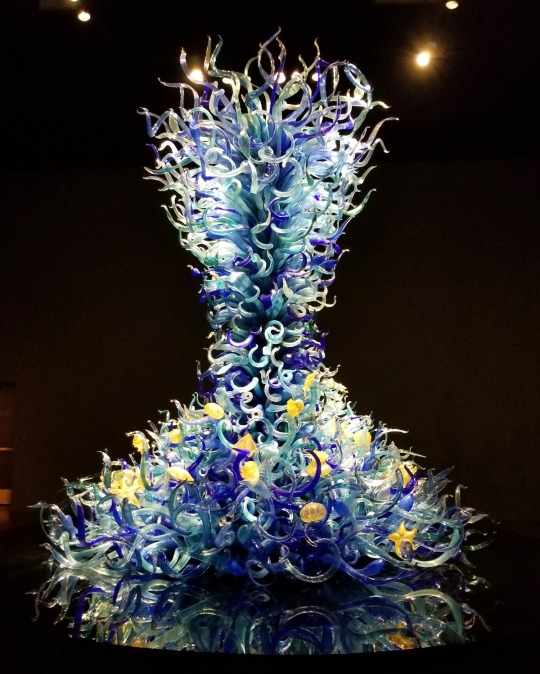
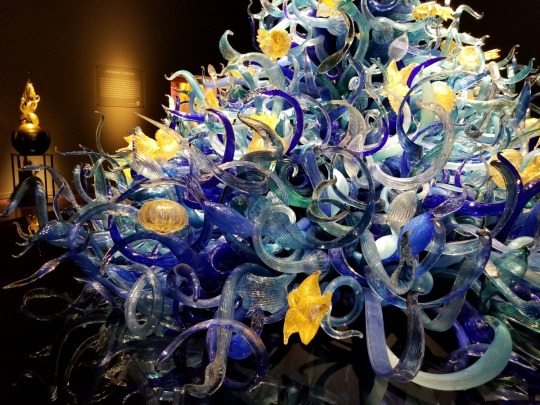
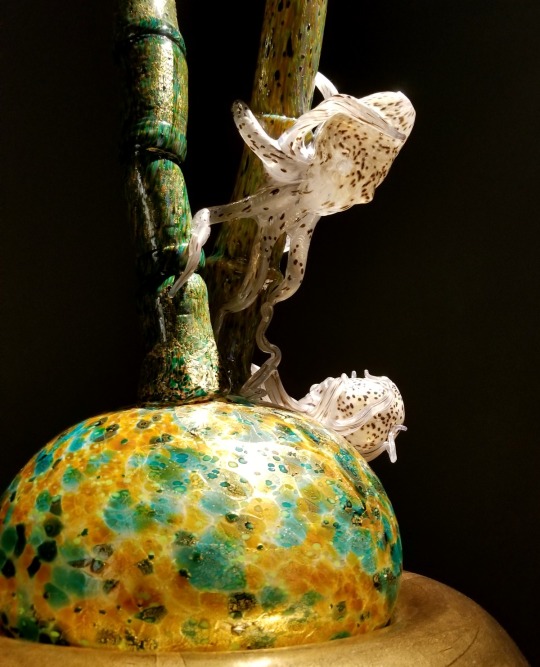


After passing under the gorgeous Persian Ceiling, we saw the truly amazing Mille Fiori (Italian for "thousand flowers").


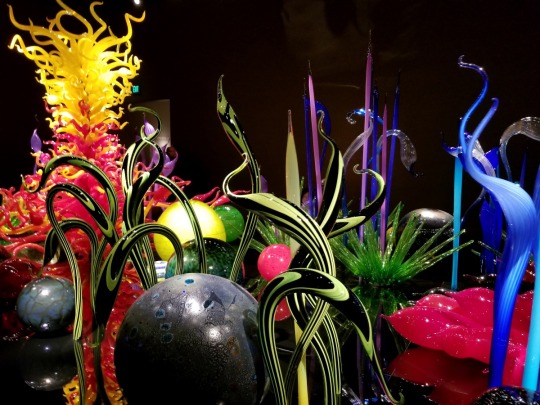
After some more stunning pieces, we came to Chihuli's Ikebana and Niijima floats, featuring boats loaded with floral and sphere motifs, respectively. We found the Niijima float especially tranquil and calming to look at.
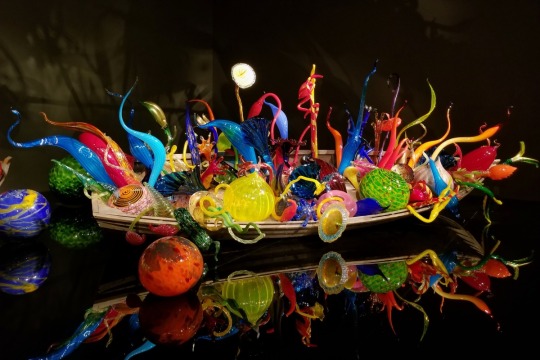

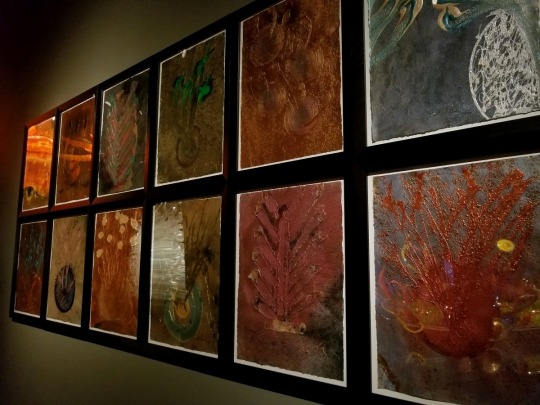
On the wall opposite from the floats hangs a series of "Burned Drawings"--mixed media artworks created by Chihuly after he lost the use of one eye in a glass-blowing accident and had to relinquish much of the grunt work to his apprentices. He turned to drawing as a way to channel his visions into reality, using paints, metallic pigments, charcoal, and even an acetylene torch to create some truly unique mixed-media effects.
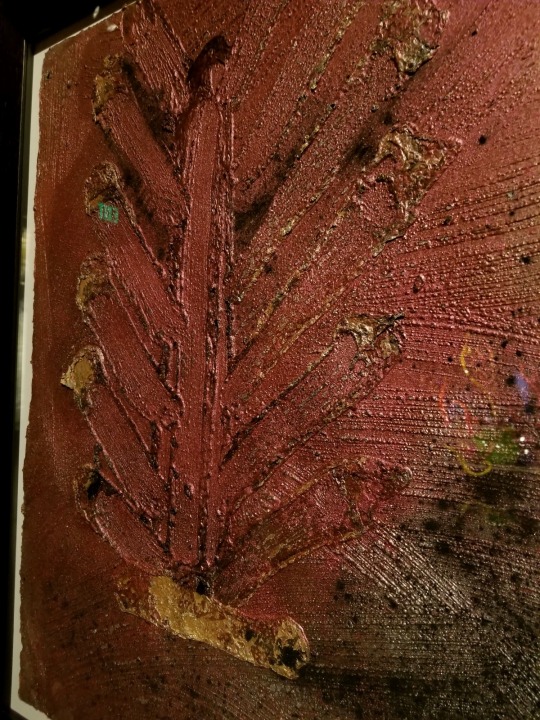
Yet another amazing display was the Macchia Forest--a series of scalloped bowls made using all 300 colors in Chihuly's workshop.



Moving outside, we wandered through the magnificent gardens, filled with colorful glass tendrils rising from the ground like a beautiful alien invasion.




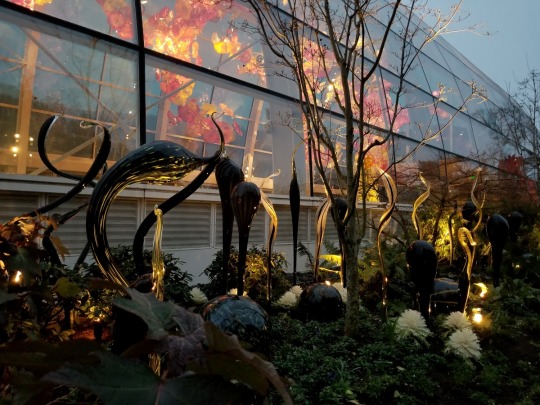

At the center of the museum is the Glasshouse, which houses one of the largest and most complex suspended installations Chihuly has ever made. It looks like one continuous string of exploding flowers, but from the side we could see that it was actually composed of many smaller pieces cleverly hung together to give the impression of continuity.



And faintly visible through the ceiling, the iconic Space Needle towered directly over us.

Before we left, we got to see a live glassblowing demonstration by a team of three museum employees. They were using a mobile workshop converted from a vintage Airstream trailer.
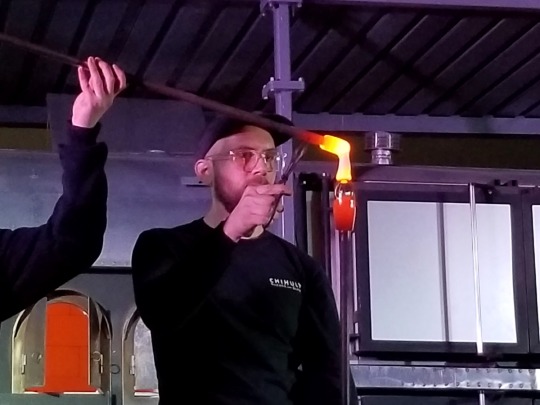
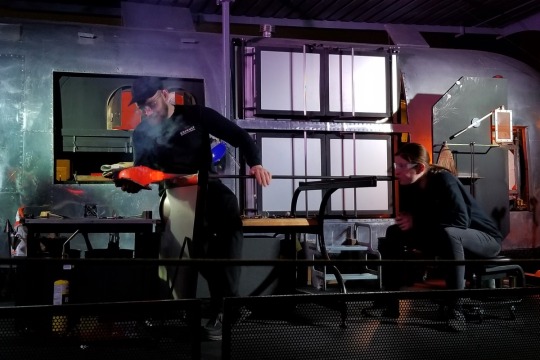
It was fascinating to watch them work, and the darkening evening made the glow of the molten glass all the more spectacular. Even though they were only creating a simple cylindrical vase, we were enthralled to see them start with a small, egg-sized ball of molten glass and expand and shape it, adding bits of clear and colored glass along the way.
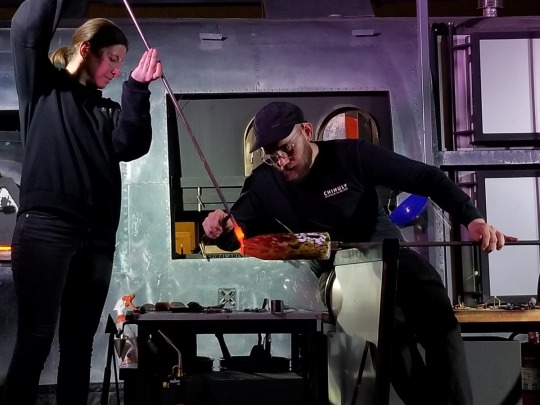
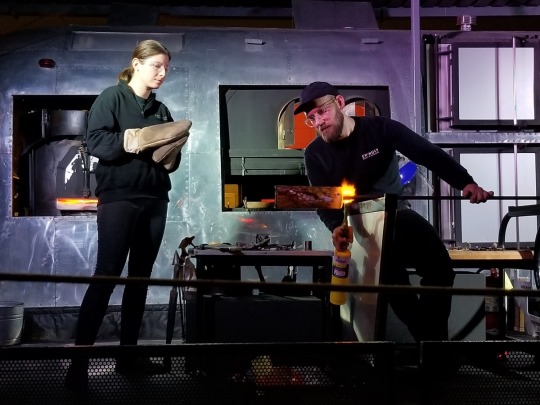
It was especially impressive to see the way the team worked together with practiced ease, each anticipating and preparing for the others' needs.


After the show, we took one last look into the gardens, then headed over to the Space Needle gift shop, where all of the artwork made by the glassblowing demonstrations is put up for sale.

We made our way to the Armory, a food court in the center of the museum plaza. Most of the restaurants were already closed despite it being early evening on a Friday, but we stuck around since we were meeting up with some of Heidi's old college friends. Afterward, we went home on the monorail, which exists solely to connect the museum plaza with the main train station downtown.
That night, as I tried to sleep on the pullout couch, I was reminded just how nice it is to sleep in a real bed.
The rest of the weekend was dominated by PodCon.
It was the second annual PodCon convention, featuring the Green and McElroy family podcasting empires, as well as a host of other great podcasters including--but far from limited limited to--Roman Mars of 99% Invisible, Helen Zaltzman of The Allusionist, Ross and Carrie of Oh No Ross & Carrie, the Hannahs Hart and Gelb of Hannahlyze This, and Cecil Baldwin, Jeffrey Cranor, Joseph Fink, Symphony Sanders, Dylan Marron, and Meg Bashwiner of Welcome to Nightvale.
Heidi and I were mainly fans of the various McElroy and McElroy-adjacent podcasts, but we were excited to discover new great podcasts and podcasters as well.
Saturday started with a fun opening ceremony. Highlights included listening to Hank Green and Travis McElroy talking about being dads of toddlers, Cecil Baldwin encouraging us all to take a break and appreciate floors, and Griffin McElroy passing on the crown of “cronching.”
Next, we saw a live performance of Oh No Ross & Carrie, which Heidi hadn't seen before. Ross talked about his experiment to see if their ban from Scientology had reached this far north, then they covered a Seattle ghost tour they'd taken the night before. There had been a bit of a mix-up with regard to the question of whether there would be a projector in the meeting room, but Carrie kindly kept us apprised of just how much we would have enjoyed the pictures they'd taken.
It was everything I'd hoped for.
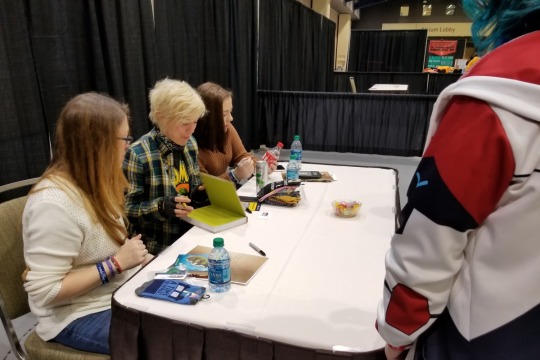
We managed to get into a meet and greet with the Smirl sisters of Still Buffering, including Sydnee McElroy, who also hosts the medical history podcast Sawbones with her husband Justin McElroy, of My Brother, My Brother, and Me and The Adventure Zone. (Confused yet?)
I was able to get my copy of The Sawbones Book signed by Sydnee and Teylor, who did the book's fantastic artwork, and Heidi was able to have a very brief chat with Teylor about art school and continuing to do art even when you don't end up being able to make a full-time living off of it.
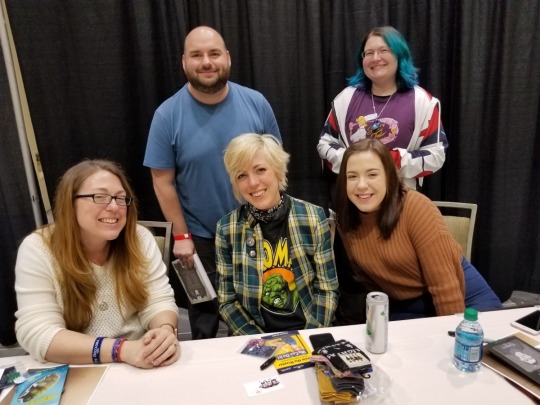
All three of them were incredibly sweet and wholesome.
After that, we saw a live performance of Buffering the Vampire Slayer, which neither of us had seen before. Hosted by the formerly married Kristin Russo and Jenny Owen Youngs, each episode recaps an episode of Buffy the Vampire Slayer, reveling in its silly awesomeness while also appreciating its relevance to ongoing social, political, and LGBTQ issues. Even having never seen the episode they were recapping, it was very entertaining and accessible.

Last two shows of the night were Still Buffering and My Brother, My Brother, and Me, the two shows we had been most excited to see. They were both very fun, and the episodes have already been posted this week.
After day's events were over, we took an Uber over to Pair, a fine Franco-Mediterranean tapas restaurant in the university district where another of Heidi's old friends works. The food was absolutely delicious, and for dessert Heidi's friend prepared a special "raindrop cake."

It was… interesting.
The second day of the convention, we saw three panels: one on podcasting with family (featuring Teylor and Riliegh Smirl), one on dealing with anxiety and depression as a comedic entertainer (featuring Justin McElroy), and one on telling complex stories in a simple and accessible way (featuring Sydnee McElroy). The last panel also introduced us to the delightful Helen Zaltzman of The Allusionist, a non-prescriptivist podcast about the charms and foibles of the ever-evolving English language.
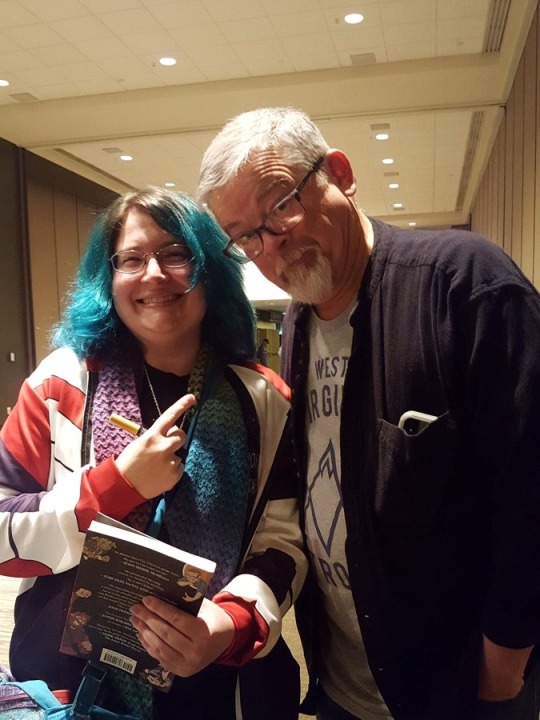
We also got to meet Clint McElroy, father of the McElroy brothers, co-host of The Adventure Zone, and author of the Adventure Zone graphic novels. He was a surprise guest on the family panel and was more than happy to lead his "disciples" out into the hallway afterward for book signings, photo ops, and fatherly hugs. Like everyone else we met, he was incredibly kind and respectful.



Taking a break, we walked down to the Pike Place Market for lunch. We got chicken katsu and a chocolate and strawberry crepe, both of which were among the tastiest either of us had ever had. We also checked out Golden Age Collectibles, which is apparently the world's oldest comic shop.

Last big show of the convention was Sawbones, where Justin and Sydnee talked about auriculotherapy--a pseudoscientific practice similar to reflexology that claims you can cure just about any ailment just by applying the right pressure, vibration, or radiation to specific pressure points in the ear.
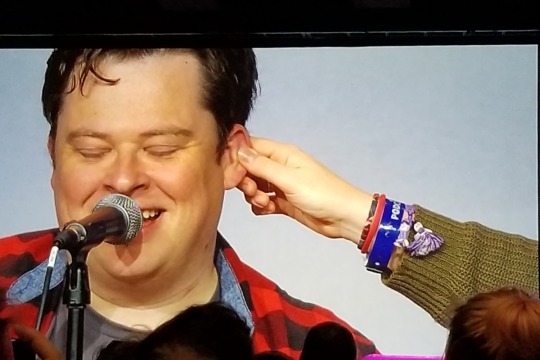
The con ended with a wonderful closing performance. Highlights included an experiment to record an entire ten-episode podcast season in ten minutes (One Question, With Allegra Frank), Roman Mars and Justin McElroy conversing through prerecorded sound bites, and a hilarious and terrifying game where four podcasters had to compete to say catchphrases while wearing a dental mouthpiece. Carrie Poppy handily won, then proceeded to deliver an amazingly drawn-out and over-the-top victory speech--while still wearing the mouthpiece.
I’ve never been much of a convention person. I don’t like crowds, and I don't have a deep-seated desire to share my obscure obsessions with total strangers. Liking the same thing is good fuel for a friendship, but I don't see it as a basis for one. Still, getting to see the live performances and panels was a thrill, and it was truly touching to see people enjoy themselves and revel in their weirdness in a way that they probably don't feel free to in their regular lives.
All in all, it was a fantastic weekend and a much-needed break from the busy holiday work season. I have to say that, while our Airbnb experience was quite positive, in retrospect I probably would have stayed at the hotel instead. It was cheaper than a hotel, but not that much cheaper. Close to the convention center, but still a bit of a walk. And we didn't really have time to take advantage of the kitchen or any of the other amenities. Having a larger space and separate rooms was the main benefit, but the beds really weren't that great.

Anyway, we had a great time, and the trip home was as easy and uneventful as our flight over. In fact, the TSA agents were unnervingly friendly and cheerful--an experience I'd never encountered before in a US airport.
2 notes
·
View notes
Text
The original TV series Roswell (not to be confused with the new CW show Roswell, New Mexico) ran for 3 seasons on The WB (seasons 1&2) and UPN (season 3), from 1999-2002, for a total of 61 episodes. The show was very loosely based on the YA book series Roswell High, written by Melinda Metz. Jason Katims (who later went on to create Friday Night Lights and Parenthood) created Roswell and stayed on as showrunner for all three seasons.
Roswell takes places in the real life small town of the same name, in southern New Mexico, where a mysterious crash in 1947 has become legendary in the decades since it happened. The alien spaceship crashed out in the desert, leading to rumors and guesses about what really happened, which quickly led to a government cover up. Roswell houses a military base which took part in an investigation of the ship and secret alien remains. The town itself has embraced its notoriety as an alien and UFO Mecca, with businesses and events throughout the town sporting space themes and catering to alien-hunting tourists.
At least one adult alien survived the crash and was captured. It was treated brutally and subjected to inhuman experiments, supposedly in the name of science. The alien eventually escaped, leaving a trail of violent retaliation in its wake. It then went underground, disappearing for decades, but leaving the institutional memory of its existence and its ability to harm humans behind.
Several pods, containing the embryos of alien children, also survived the crash and were safely moved to a cave by the adult survivors. In the 80s, three seemingly human children, Max Evans, Isabel Evans, and Michael Guerin, came out of the pods. They looked like they were about 6 years old, but they couldn’t speak, and had no memories. They wandered out into the desert together, but were separated.
Max and Isabel were found by a married couple, Philip and Diane Evans, who adopted them. Michael ended up in abusive foster homes, but he stayed as close to Isobel and Max as he could. Together, they discovered their powers and figured out that they must be aliens. They resolved to keep their true identities secret from everyone but each other. The danger and the secrets helped them bond and form especially close sibling relationships.
Max always had a crush on Liz Parker, but mostly watched her from afar. They were friends, and she noticed him staring at her sometimes, but neither made any further moves. Until there was a shooting at her father’s restaurant, where she was a waitress.
The shots were unexpected, and Liz was down before anyone understood what was happening. Almost everyone ran from the diner, but Max stayed to check on her. He realized that the bullet must have hit an artery in her abdomen, and she was going to bleed out before help could arrive.
He had to make a choice. Let Liz die, or keep his secret? He couldn’t let the girl he’d always loved die just because he was afraid of something that might or might not happen. He healed her, then pretended that a bottle of ketchup had broken on her and ran out of the diner.
That’s the start of everything. The Sheriff is from an alien hunting family, and he becomes suspicious of Max. Gradually Liz’s closest friends, Maria and Alex, also learn the secret, and the Scooby gang is complete. Liz’s ex-boyfriend, Kyle, doesn’t want to give her up without a fight, so Max has some competition. Various other humans and aliens help and harm them, becoming part of their adventures.
Season 1 is low-key, focusing on the kids as high school students and friends, keeping their issues close to home and largely within the show’s cast. This was Jason Katims’ vision for the show, especially the first 13 episodes. Those first 13 are incredible, and I wouldn’t blame anyone who stops there. The network started interfering after that, but season 1 still mostly makes sense, I think. The biggest change is the introduction of Emilie de Ravin late in the season, as a fourth alien, Tess, who can’t be trusted.
In Season 2, the show reinvented itself, bringing in new characters and a race of alien villains called the Skins. The characters forgot that they were still in high school and became alien fighters. It seemed like they were more concerned with past events on their home planet than current events in their own lives on Earth. But they had really great hair, makeup and clothes. And the writing was as witty and heartfelt as ever.
In season 3, Roswell changed networks, and reinvented itself again. This time, it went from a cracky, brightly-colored, alien version of Buffy the Vampire Slayer to a darker, more intense, more mature version of itself. There wasn’t supposed to be a time jump, but the characters seemed to age five years. They were facing more adult situations such as marriage, divorce, children, leaving home for good, and when and how much to sacrifice themselves for others.
Along with these adult situations came attempts to add more nuances to the characters, which didn’t always work. Tess benefitted from being softened and redeemed, but Max experienced character assassination from being given a dark, obsessive side. This season made the least sense of the three seasons, but there were still some great episodes and great moments. And great looks and great songs.
As I mentioned, Jason Katims saw the show as Dawson’s Creek, with aliens, while the networks wanted Roswell to compete with Buffy the Vampire Slayer. Jason Katims has never done scifi or supernatural before or since, and I don’t think he was prepared for the level of detailed and consistent world building it would require.
He wanted the show to be a character driven drama (similar to his other shows) where the aliens don’t use their powers much. To him, the powers were just supposed to be an occasional plot device. This goes against traditional storytelling wisdom and common sense. You don’t get your backers and your fans excited about aliens, then forget to show the aliens.
Ron Moore, veteran of the Star Trek franchise who went on to create Battlestar Galactica and Outlander, was brought in for the second and third seasons to help improve the ratings. But the production was already too far adrift, and had lost too much of its audience.
Roswell had a killer soundtrack when it aired. The original soundtrack remains on episodes aired in syndication, but many of the songs have been replaced on the DVDs. However, the songs from important moments do remain intact on the DVDs. The songs used in the episodes and as the theme song (Dido’s Here with Me) became hits. Both Jason Katims and Ron Moore are known for giving each of their shows a unique “look”, and Roswell is no different. It’s beautifully shot and designed.
The characters are varied, funny and interesting. Women are well represented and aren’t held back because they’re female. There could be more diversity, but Roswell was made before there was pressure on studios to diversify their casts. At least there are a couple of regulars who are Hispanic, are a recurring character who is Native American.
The cast of Roswell included: Shiri Appleby as Liz Parker, Jason Behr as Max Evans, Katherine Heigl as Isabel Evans, Majandra Delfino as Maria DeLuca, Brendan Fehr as Michael Guerin, Colin Hanks as Alex Whitman, Nick Wechsler as Kyle Valenti, William Sadler as Sheriff Jim Valenti, Emilie de Ravin as Tess Harding, and Adam Rodríguez as Jesse Ramirez (season 3).
Despite its issues, there are many great episodes and moments in Roswell, when the writing, the acting and the production all came together to create something special.
So, in lieu of a grade, we put Roswell in the category of Brilliant But Flawed.
Favorite Episodes:
Season 1: Pilot (101), Heat Wave (109), The Convention (113), Blind Date (114), The White Room 121)
Season 2: Summer of ’47 (204), The End of the World (205), A Roswell Christmas Carol (210)
Season 3: A Tale of Two Parties (310), I Married an Alien (311)
Images courtesy of 20th Century Fox Television, Jason Katims Productions and Regency Television.
Quick Review of Roswell: Entire Original Series The original TV series Roswell (not to be confused with the new CW show Roswell, New Mexico) ran for 3 seasons on The WB (seasons 1&2) and UPN (season 3), from 1999-2002, for a total of 61 episodes.
#aliens#Brendan Fehr#Jason Behr#Jason Katims#Katherine Heigl#metacrone#Original Roswell#Quick Review#review#Roswell#science fiction#Shiri Appleby
1 note
·
View note
Text
The Disaster Artist (2017) Review
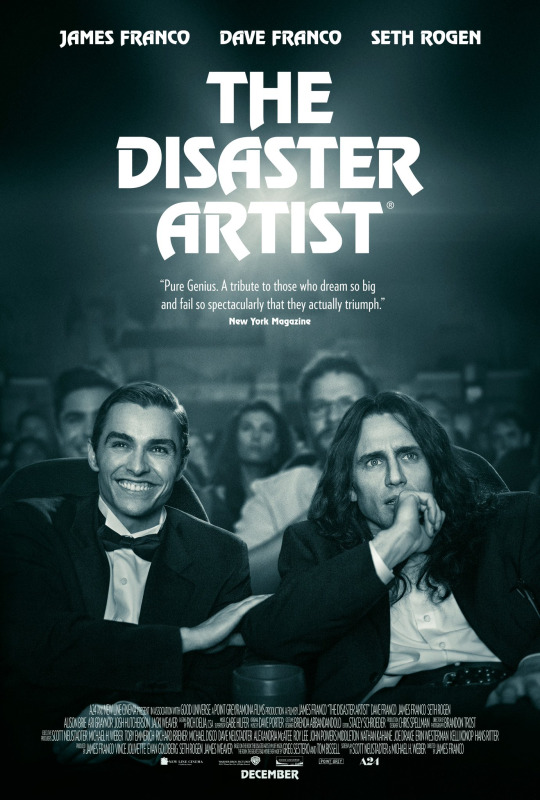
Oh hi, Tumblr!
Plot: When Greg Sestero, an aspiring film actor, meets the weird and mysterious Tommy Wiseau in an acting class, they form a unique friendship and travel to Hollywood to make their dreams come true.
So there is this film that exists which goes by the name ‘The Room’. No, I’m not talking about ‘Room’, the Oscar nominated Brie Larson starring movie, but the 2003 movie that was written, produced and directed by this vampire-like guy named Tommy Wiseau. Oh, and yes, he also stars in that movie! To summarise that film in a nutshell, its known as one of the worst movies ever made, however its not like any other bad movie. With a bad movie, you watch it, have a terrible time and then never watch or think about it ever again. With ‘The Room’, it’s a special kind of deal. Its bad, don’t get me wrong, there are so many wrong things about it, yet I have rewatched that movie so many times, and had a great time doing so every single time. It’s just strangely entertaining. ‘The Room’ is the definition of a movie that is so bad that it is actually good. Hilarious dialogue, so many weird directorial choices, endless pictures of spoons (for some reason!), characters so bad that they become so memorable and some of the most quotable lines in cinema history. “You are tearing me apart, Lisa!” So if you haven’t seen ‘The Room’, watch it. Get some friends together and watch it, and you’ll have one hell of a night! Also watch it for the sake of ‘The Disaster Artist’, as even though ‘The Disaster Artist’ stands well on its own, watching it is a lot more enjoyable if you have experienced ‘The Room’ beforehand, trust me on that one. Anyways, let’s actually talk about ‘The Disaster Artist’, or else I’m going to end up going on an endless tangent of discussion about ‘The Room’!
So ‘The Disaster Artist’ is a behind-the-scenes look on the making of ‘The Room’, more specifically about these two friends, Tommy Wiseau and Greg Sestero, who move to Los Angeles to pursue their dreams of becoming actors, and when after a lot of effort fortune doesn’t go their way, they decide to make their own little movie, ‘The Room’, however the results of that film were nothing that they could have possibly imagined. And being that ‘The Disaster Artist’ is brought to us from the likes of James Franco and Seth Rogen, who are known for making stoner comedies, it was obvious that this film was going to be a comedy at least partially, and boy is it funny! This film is easily one of my favourite comedies this year alongside ‘The Death of Stalin’, as the laughs are endless, and it is was really rare for their to be a joke pop up that wasn’t in some way entertaining. The way ‘The Disaster Artist’ infused comedy was through the was Tommy Wiseau acts around others, how he is different from everyone else, however at the same time the film celebrates the individuality and uniqueness of every person, including Wiseau, and how that in the end can work for their benefit. And also the film has a lot of fun re-imagining the iconic scenes from ‘The Room’ with all these new actors, which again is a cause for much laughter. However even though I really appreciated the comedic moments, it was the deeper emotional moments that I connected with more. This film is mainly about two things: friendship and fighting for your dreams. The friendship between Wiseau and Sestero is very interesting to unravel, whilst the whole idea of achieving and not giving up on your dreams is a lesson that anyone can learn, as if you never give up, you will get somewhere, maybe not the way you wanted it to, but like with Wiseau, Sestero and ‘The Room’, in an unexpected way that still works out very well. And when the film focuses on these moments, this is where it truly shines, and that is why I also have a slight complaint, as I feel like the film should have delved a bit more deeper into the emotional side of things. The emotion is there, but I feel like there definitely was space for more. That is one of my two slight issues with this film, however I’d like to emphasise that both this and the point I will discuss later didn’t detract much from my enjoyment of this film. I still very much loved it, but I also felt like I’d very much need to address these minor issues.
The cast assembled for this film is literally superb. Both James Franco and Dave Franco fit perfectly into the roles of Tommy Wiseau and Greg Sestero, and since these two actors are brothers in real life, their on-screen friendship felt even more real. Also, Franco nails the Wiseau accent, whilst at the same time adding his own little spin on it. All the people playing the cast members of ‘The Room’ are some of the best casting of the year. Ari Graynor was very accurate as ‘Lisa’, Jacki Weaver as ‘Claudette’ was very funny, constantly asking if the infamous “I have breast cancer!” line will have any follow up later in the story, Josh Hutcherson is hysterical as the creepy ‘Denny’, and Zac Efron is unrecognisable as the drug dealer ‘Chris-R’. Then the behind-the-scenes of ‘The Room’ crew all did great, however special mentions to Seth Rogen and Paul Scheer as the script supervisor and director of photography, both of which have a superbly done confrontational scene with Franco’s Wiseau. And Jason Mantzoukas has a great little cameo in the film too. Now we come to my second negative for the film, with Alison Brie as the weak-link of the cast, well more her character rather than her, since Brie does good with what she is given, however her character felt very lackluster and wasn’t given much to do, whilst I think with her being Sestero’s girlfriend, there was room (get it?) for more confrontation with Wiseau, since the movie hints at this, but never goes all the way, which I think was a missed opportunity.
As a whole, ‘The Disaster Artist’ is a very well done film, with some surprisingly great cinematography work (probably the biggest surprise of the whole film for me), a great script from screenwriters Scott Neustadter and Michael H. Weber that adapted Sestero’s book, solid comedy with lots of one-liners (though none as memorable as those from ‘The Room’ itself!), and the emotional parts are done well, though as I said earlier, there was room for more.
Overall score: 8/10
TOP MOVIE QUOTE: “Oh hi, Mark...Oh hi, Mark...Oh hi, Mark......Oh hi, Greg!”

#the disaster artist#the room#the disaster artist review#tommy wiseau#greg sestero#james franco#dave franco#seth rogen#comedy#drama#bibliography#true story#alison brie#josh hutcherson#jacki weaver#paul scheer#zac efron#jason mantzoukas#ari graynor#bryan cranston#making of#movie#film#movie reviews#film reviews#2017#cinema#watershed#oh hi mark#hollywood
6 notes
·
View notes
Photo










ROB CRASH MAGAZINE INTERVIEW IN FULL WITH BETTER SCANS
Robert Pattinson, who became an international star at the age of 22, thanks to his role as a vampire in the Twilight saga, definitively changed his image in 2012 with his masterful interpretation in Cronenberg's 'Cosmopolis'. Since then, he's looking for working on indie projects and movies that are different. At Cannes, he plays a marginalised character in 'Good Time' by the Safdie brothers. This highly anticipated independent production is in the official selection of the Festival. After Cannes, it’s a shoot with Claire Denis that is waiting for him. For Crash, he accepted to play along with the artist Torbjorn Rodland and again he didn't hesitate to break his image ... As for Torbjorn Rodland, he will have an exhibition in Paris in June, at La Galerie Air de Paris. How was the photoshoot with Torbjorn Rodland? He's a real artist. Usually he shows his work in art galleries or museums. He isn't a classical fashion photographer. Rob: It was funny. It was interesting and really different from usual photoshoots. Yes it was a really interesting shoot. I really love his work and he also gave me his book. He's really brilliant. Let’s talk about your upcoming movie 'Good Time'. How did you meet the directors, Josh & Ben Safdie? Rob: I saw 'Heavens Knows What' a long time ago. There was something magical with Arielle Holmes' energy, the star of the movie. So I contacted Josh and Benny and met them in LA. I really liked them. They have an incredible energy and I really felt like something good could be done. I really made myself the promise to do anything they would ask me during this first meeting. Considering what they have done until now, I think I was right. We can feel this energy from the beginning of the film. It's really dramatic, the soundtrack is excellent, the film is very original and different... And it's also totally an indie project. Rob: I got the same feeling about the film: it is very unique compared to all the movies that are released right now. We no longer make movies like they do. So I really can't wait to see how the audience will react. The shoot went really well. And it's also a small production ... Rob: Yes a very tiny one. But we put tons and tons of energy in it. It was really an intense shoot: at least 16 hours of work a day. In the end, we could have made three or four movies with the footage we had! Would you want to work with them again? Rob: Of course I would! I would do anything with them. With a snap of a finger! Good Time is a very moving film. It follows two brothers, one of them has a mental disorder and his big brother tries to help him. How do you see their relationship? Rob: One of the brothers, Nick, is mentally disabled and Connie, my character, is kind of mentally crazy too! He's not a reasonable guy who takes normal and rational decisions. He convinced himself that he can do everything he wants, as soon as it's for his brother. But in fact he is always taking disastrous decisions. He isn't normally connected to the world. Before the shoot, we worked really in depth on the relationship between Nick and Connie. Our idea was that Connie and Nick are in fact not really that close. Connie just came out of jail and he is aware he has to recreate a bond with his brother, but he doesn't know him very well. So it's an unusual relationship. Connie doesn't have a real family. He only has his bother. Rob: Yes. And if you take a look at his character, he's really the sort of guy who is rejected by his family. I think everybody knows somebody like him, someone who keeps testing the limits of people around him just to see what they will be able to accept. His family rejected him a long time ago. Is it important for you to see a movie like this one being selected at Cannes? Rob: Oh yes of course! Especially when you know how the movie saw the light of day. It began like a very small project and it proceeded very well. I really loved it the first time I saw it. And Cannes is also my favorite place to show movies. It's really a different experience, even when you compare it to other film festivals. I think the Safdies really deserve to be there, especially in competition. I was so happy when they were selected in the official competition. You also worked in big productions. Is it important for you to work on smaller indie projects? Rob: Yes, even if I haven't made any blockbuster movies for a long time. It's really difficult to find interesting small projects. Someone can have a really good script, but doesn't have what is needed to make a good film. The Safdies are really fascinating artists. Everybody wants to work with people like them. I was extremely lucky. You also did two movies with David Cronenberg. How was it to work with him? Rob: I did Cosmopolis with him about five years ago. It was a totally new experience for me. I would never have thought I would be able to do movie like this one and work with people like Cronenberg. And because David believed in me, my destiny took another path and it has completely changed my life. David is really the best. Is he the best director you have worked with? Rob: They're all very good, but David's movies are really different. I watched 'Videodrome' the other day. He made movies in the early 80' that are totally out of the ordinary, even today. But all the directors I worked with are amazing. His 80' movies are completely crazy. Their style was really edgy for this time and they still are today. The idea of 'Cosmopolis' was also very new: to shoot an entire movie inside a limo and that is only focused on you. Rob: The writing was so incredible. But I like people who have an original way of thinking. 'Good Time' is like this too, considering it doesn't give you any indication of the way you have to take it. Clearly there is no good and evil. I try to work with people that can detect the grey areas of existence. In the end they're more intelligent. There are lots of similarities between the way the Safdies see the existence and the way Cronenberg does. Do you want to work more in Europe than in the United States now? Rob: Yes, I'll play in a movie by Claire Denis this summer, in Germany. I think I'll be there for three months or so. I don't why it took me so long to work in Europe. It just happened. Do you live in the UK or in the United States now? Rob: In fact I'm living between London and LA. Can you tell us more about this Claire Denis' movie, 'High Life'? Is it in English or in French? Rob: It's in English. It takes place in a spaceship. It's about a group of criminals who serve a sentenced to life imprisonment and they are given the opportunity to go on a space mission. But it's also about a father/daughter relationship. There are lots of psychosexual questions in this movie. All Claire's movies are very intense and interesting. I'm really looking forward to shoot it. I have waited about three years before the movie could be done. Will it be the first time you'll work with a French director? Rob: Yes I think so. I was about to work in an Olivier Assayas' movie, but it was stopped the day before the shoot. Twice in fact. So yes I think Claire will be the first French director. What happened to Assayas' movie? It was cancelled? Rob: The movie was in the middle of the pre-production. I was doing the rehearsals for about two months. And then the day before the shoot, the funding of the project was rejected. And I came back a few months later and the same thing happened again. This kind of stuff happens very often with indie movies. People are looking for money everywhere they can, but nothing is ever safe. But I really loved the project. Maybe one day we'll work together again. It's crazy how some projects are cancelled at the last minute. Are you also involved in producing movies? Rob: I would like to be involved in some specific projects. It has not been long since I started to trust directors completely. A few years ago, I would never have been able to commit myself 100% to someone else's ideas. I realized that if you let the director being the director and that you're the actor and only the actor, it's strangely very liberating. I think you learn to do much better. But I'm always looking for things I could produce. I haven't found the perfect project yet. It can be very interesting to be involved in production, but it's a different kind of work ... Rob: On 'Good Time', I liked the producers' open-mindedness with me. It feels great to be part of a whole process rather than just doing your job as an actor and that nobody talks to you until the premiere. I'll certainly try to produce, but later. You're really young to do all these things at the same time ... Rob: But I'm getting older! (Laughs) I always think that I'm young, but I'm not so young. You began to do movies very early ... Rob: It helps when you're doing a movie like 'Good Time', when you're shooting at night and during hours. A life won't be enough to do movies like that. It's a lot of responsibility towards other people. But once again, the other day I watched 'King of New York'. You feel like this movie delivers a totally wild energy but Abel Ferrara begins to get older now. Are you going from a movie to another or do you take breaks? Rob: I want to go from a movie to another, but the projects I like take so much time to be made. I ended walking around my living room for months and months, praying the project would begin soon. I wrapped 'Good Time' a long time ago and it is only released now. Are you able to have a normal life now that you're famous? Rob: A few years ago, it was much more intense, but I have a normal life now. I don't do a lot of stuff apart from walking my dog and reading books occasionally. I do absolutely nothing ! I'm really a home-lover. Since I'm starting a way of living, I can do exactly the same stuff for weeks. It makes other people crazy but I can eat the same meal, do the same thing and go to bed at the same hour for a year. Are you working on other projects? Rob: I'll do a movie with Antonio Campos, 'Afterschool'. It's a kind of gothic thriller from the South. Do you start the filming of Claire Denis' movie just after Cannes? Rob: Yes and it'll take a lot of time. I think I'll shoot until the fall. So it means no summer holidays for you ... Rob: Living in LA is like being always on a holiday. I have already had too much! (Laughs) You're lucky! One last question: do you remember when you decided to become an actor? Was it a clear decision that you took at a specific moment? Rob: I did my first audition when I was 16 or something like that, just a part of me wanted to be an actor. Gradually, I began to take this more seriously. And during every shoot, I thought it would be probably the last one, so I wanted to make the best of it. I don't think that one day I thought 'This is what i want to do'. But I can't imagine doing something else now. Today, I can say I did this for half of my life. It's kind of crazy! Do you know how many movies you did? Rob: 23 or something like that? In fact I have no clue! It's not too many. Actually you need to do a bit more ... Rob: Yeah! I need to increase the number!
Thanks to Pattinson Art Work for translation and scans
53 notes
·
View notes
Photo










New Alex Interview! Big Little Lies: Alexander Skarsgård on His Psycho-Sexual Pas De Deux with Nicole Kidman
Skarsgård spoke to VF.com ahead of HBO’s Big Little Lies finale this Sunday.
by Julie Miller
Alexander Skarsgård and Nicole Kidman had never worked together before they united to play husband and wife on HBO’s Big Little Lies—a high-wire act in which the actors summon a textured, toxic marriage, replete with graphic violence, passionate sex, and a disturbing combination of both. (What Skarsgård and Kidman accomplish is all the more impressive considering they make up just one story line in an ensemble series limited to seven episodes.) The two actors did, however, have one mutual experience that uniquely prepared them for the task at hand.
“Nicole and I have both worked with Lars von Trier,” Skarsgård said by phone on Wednesday, referring to the controversial Danish filmmaker who doesn’t shy away from the disturbing—be it sexual, psychological, or experimental. Kidman starred in 2003’s Dogville and Skarsgård in 2011’s Melancholia. As the actor pointed out, Jean-Marc Vallée—the French-Canadian filmmaker who directed Big Little Lies—“works in a similar way—with existing lights and a hand-held camera that is constantly on the move. It’s not a traditional filming experience in that there is a master shot. You don’t block scenes. It is very liberating as an actor. Every take is different, and you can try new things without being restricted to tape marks on the floor. It helped us, especially for those very emotional and physical scenes.”
Kidman, who also executive-produced the series, has said that she was adamant about casting Skarsgård. “I wanted him! I wanted him badly,” the Oscar winner told Vulture last week about the Swedish actor, whose breakout role was as a vampire in HBO’s True Blood before he achieved title billing this past summer in the $180 million Legend of Tarzan. According to Skarsgård, he and Kidman were on the same page from day one, when they took what author Liane Moriarty had written in her best-selling novel and what screenwriter-producer David E. Kelley put in the script, then hashed out a plan for a psycho-sexual pas de deux that television audiences had never seen before.
“I wasn’t familiar with the book when I got the script, but I was really intrigued by this relationship,” explained Skarsgård. “I felt that it was an opportunity to tell a story about an abusive husband that wasn’t a stereotypical two-dimensional character—it was a chance to find someone who is genuinely, deeply struggling with his demons. We had a couple weeks before we started shooting, and I spent time with Nicole working on our relationship—discussing where we wanted it to go and how to portray the marriage, in terms of making it more interesting and more confusing in a way that was fascinating for the audience.
“We wanted to show how sexual their relationship is, and how that bleeds into the abusiveness, and how the interconnectedness of those two things make her blame herself for him being so abusive. That’s one of the reasons it takes her longer to realize she can’t be with him. At the beginning of the series, she still sees that innocence in him.”
For those intense scenes—whether they were sexual or abusive—Skarsgård explained, “It was all about building that trust, finding your connection, jumping off the ledge, and seeing where it takes you.”
Kidman has said that the physical scenes were, in fact, so physical that she left set with bruises. Her decision to go Method was partly because of Vallée’s documentary style of filming, and partly because she “wanted to tap into the truth of” what women actually go through in these relationships. As Celeste and Perry, both Kidman and Skarsgård would tap into such places of passion, darkness, and intensity for those scenes that Skarsgård admitted “it was definitely tough shaking that off.”
“It was very important to reconnect after shooting those scenes,” he continued. “We made a point of checking in with each other, giving each other a hug. Nicole is an incredible partner because she is so generous and so open and it makes it easier as an actor when you have a partner like that.”
Skarsgård chose to live in that kind of murky mind space once before—in 2002, while starring in a Swedish production of Who’s Afraid of Virginia Woolf that ran for six months and required him to go onstage and dive headfirst into the darkness for more than 150 performances.
“It was something I had to kind of work on—shaking it off—just in order to function,” said Skarsgård. “I learned the hard way. Every night was a performance, and it felt almost impossible to just go home. But you can’t let it consume you.”
Ugly and complicated as Celeste and Perry’s marriage is on the inside, the outside is a thing of splendor—they appear to be a picture-perfect couple living with their gorgeous blond twins in a modern mansion situated on the breathtaking Monterey, California, coast. And Skarsgård said he enjoyed dismantling the audience’s idyllic first impression.
“We play the dream family with these beautiful kids, this amazing house, and great sex life,” said Skarsgård. “I love storytelling like this, though, where you almost trick the audience. In general, we are lazy as consumers and just want to label people as good guy, bad guy. But it is fun when you have a project like this and can surprise people.”
Sources: Article: VanityFair.com (x) via VanityFair Twitter (x), Images: HBO.com, Medium.com, Variety.com (x), HBO Nordic (x), HighlightHollywood.com (x) + our cap from Big Little Lies, episode 7 (”You Get What You Need”).
140 notes
·
View notes